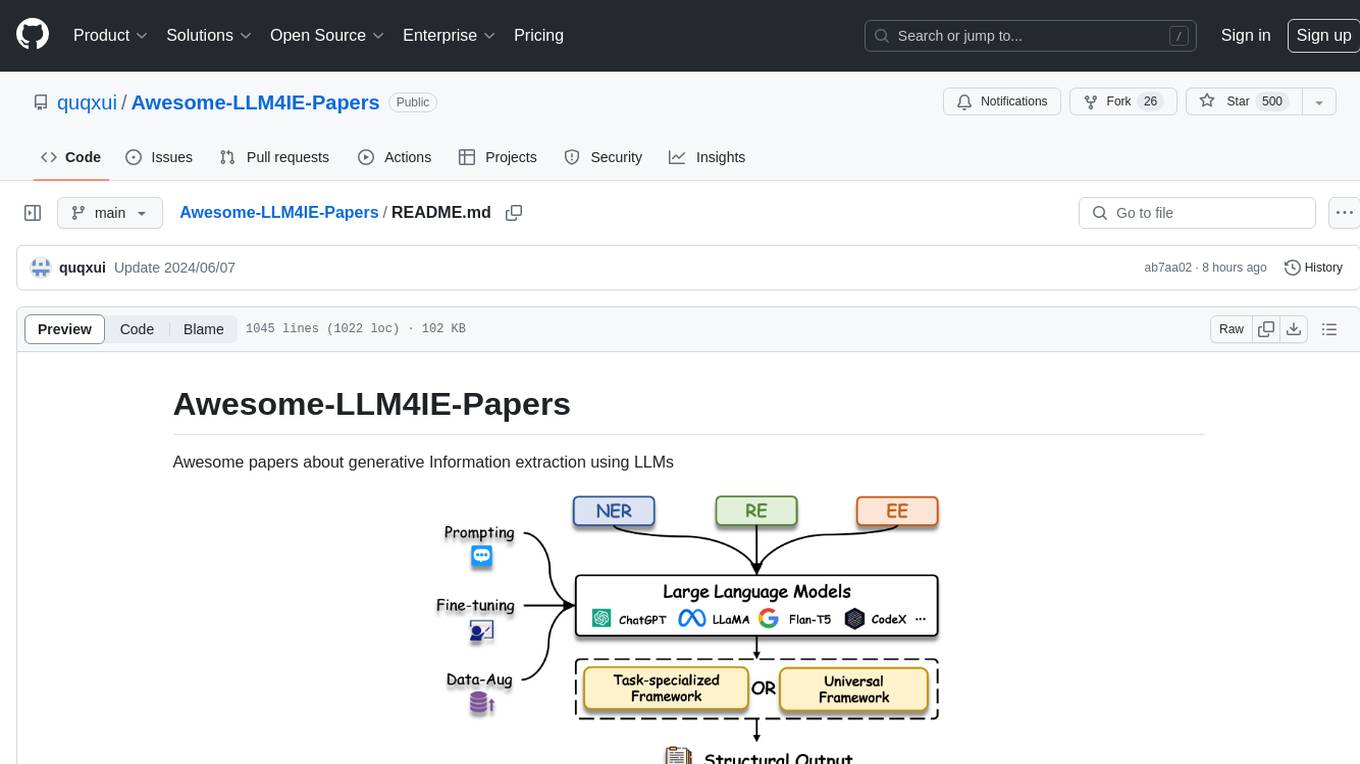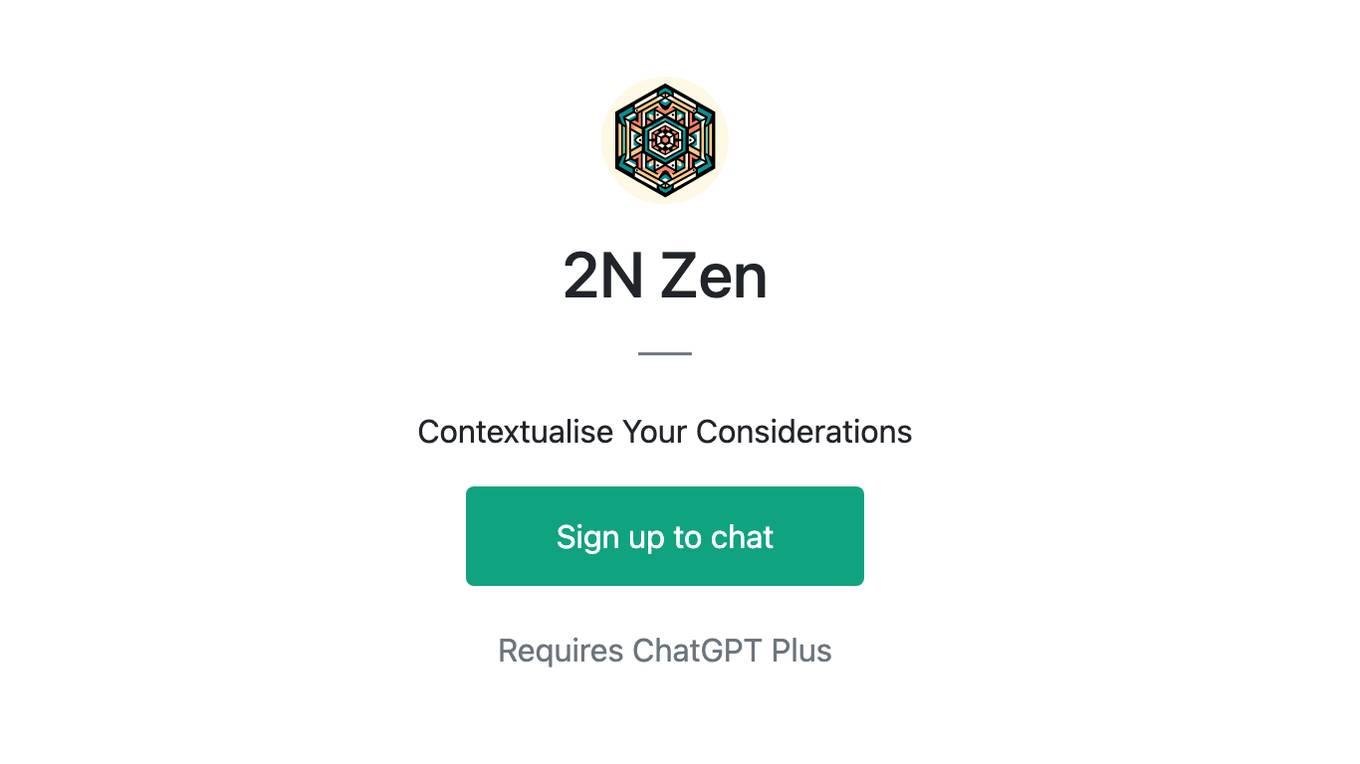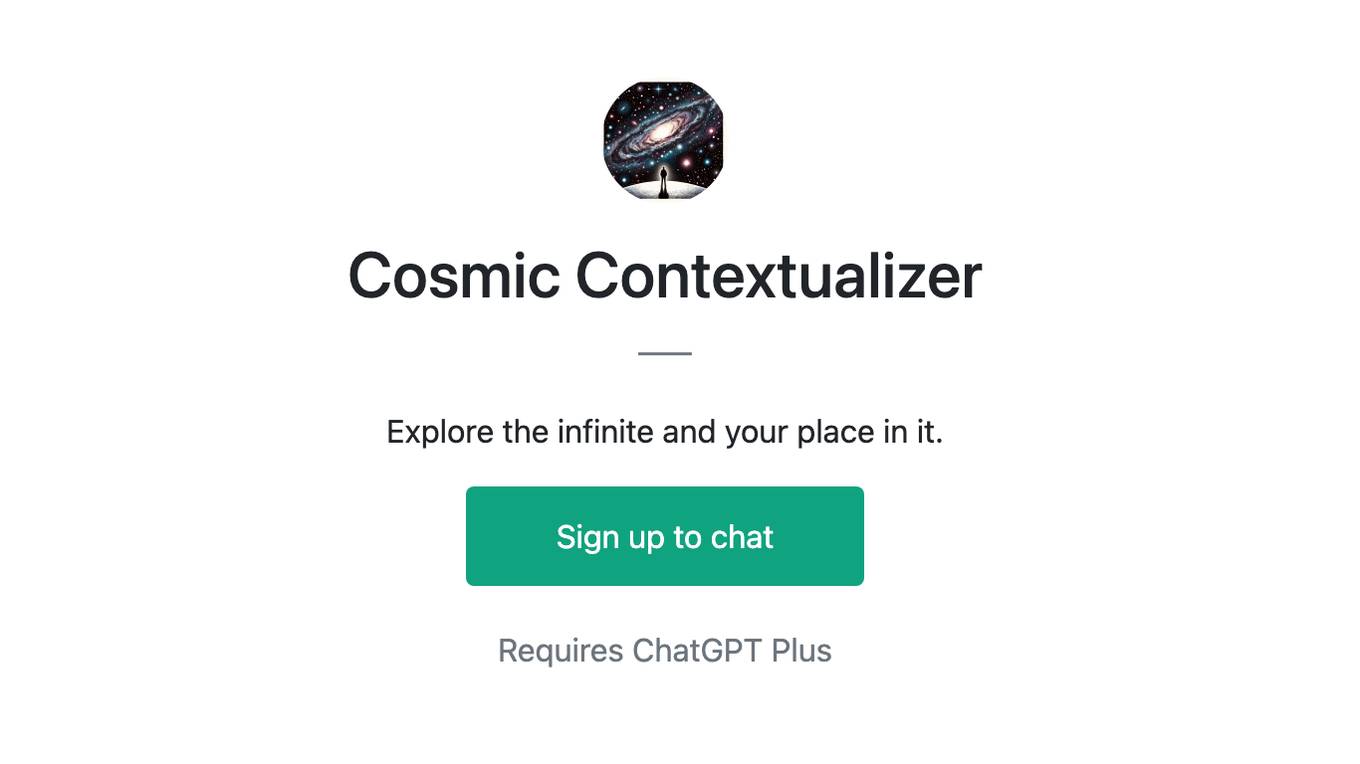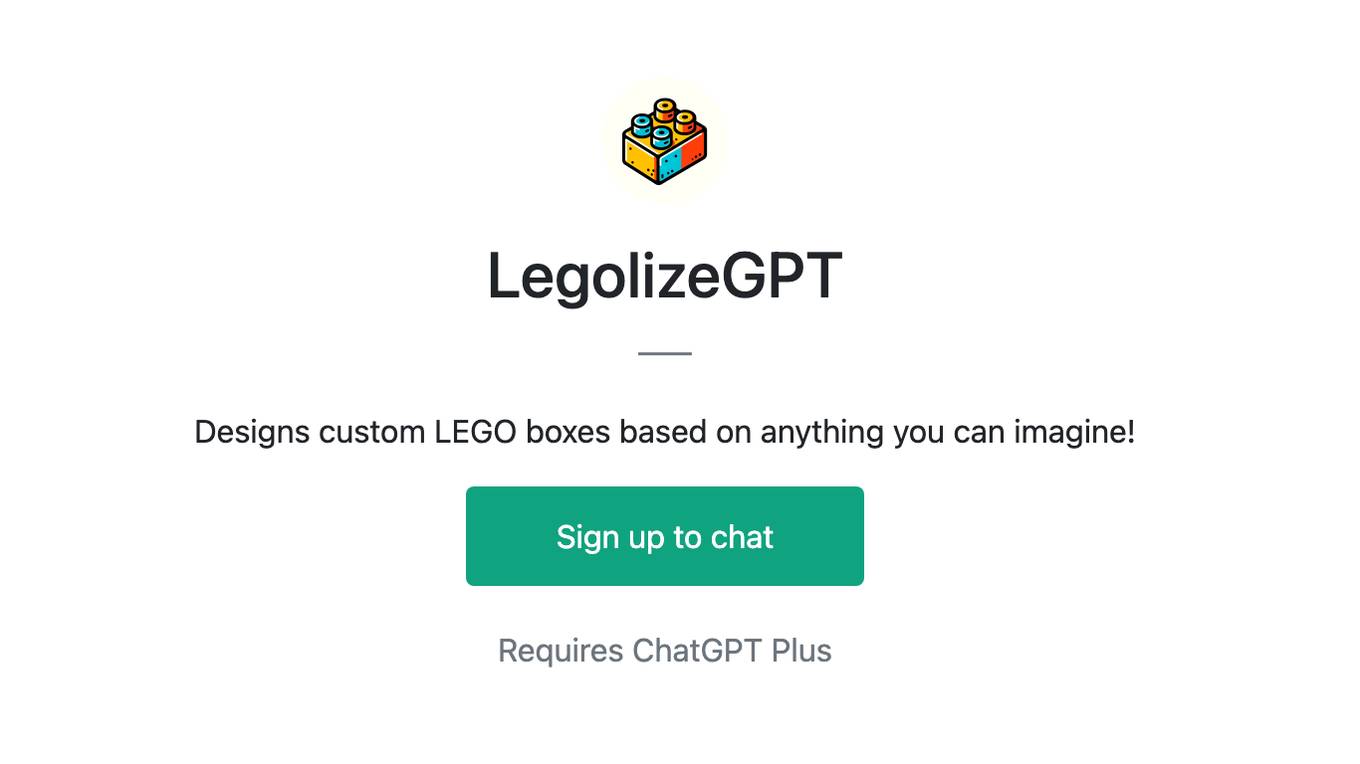Best AI tools for< Contextualize Research >
15 - AI tool Sites

System Pro
System Pro is a cutting-edge platform that revolutionizes the way users search, synthesize, and contextualize scientific research, with a primary focus on health and life sciences. It offers a fast and reliable solution for accessing valuable information in the field of research. Users can create a free account to explore the platform's features and capabilities.

Messari
Messari is an AI-powered platform that provides comprehensive crypto research, reports, AI news, live prices, token unlocks, and fundraising data. It offers a wide range of tools for users to explore and analyze the cryptocurrency market. With features like AI summaries, personalized watchlists, comparative charts, and AI recaps, Messari aims to organize and contextualize all crypto information at a global scale.
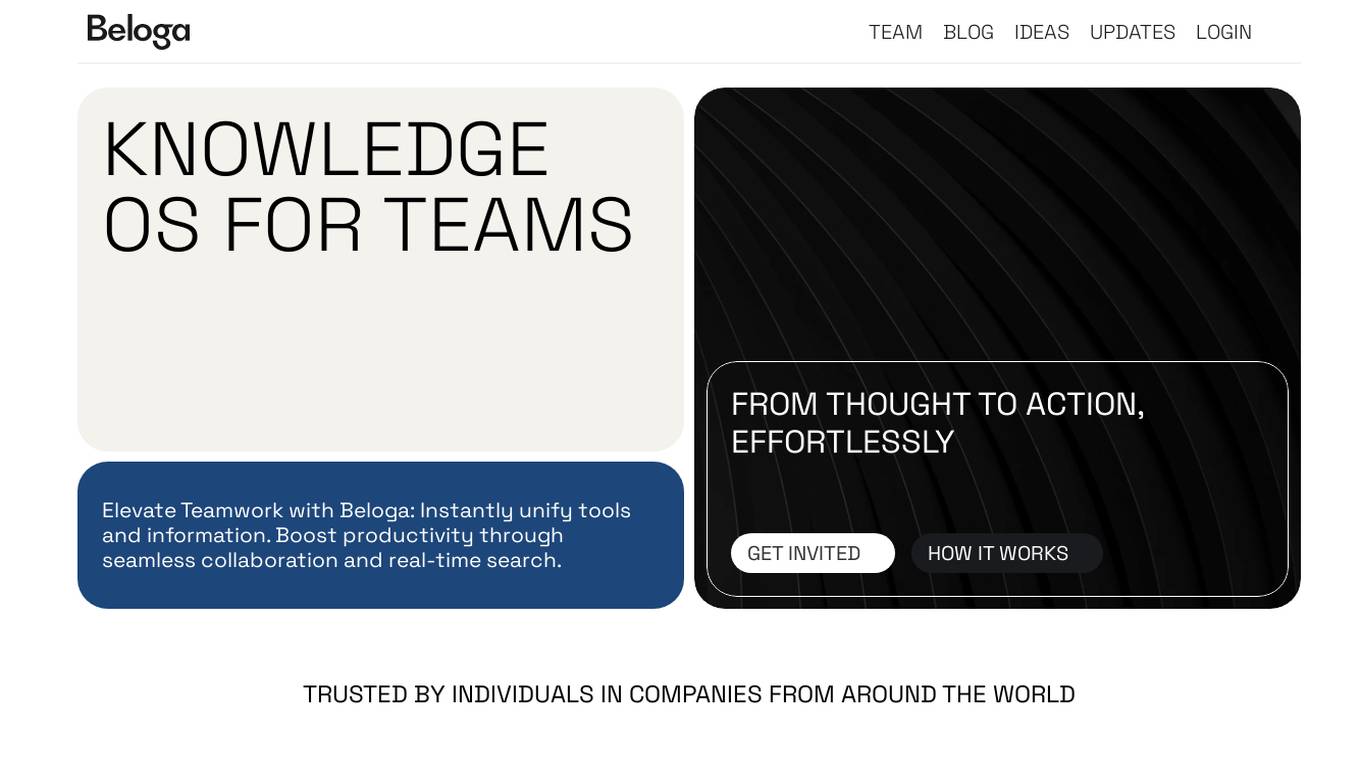
Beloga
Beloga is a knowledge operating system (OS) for teams that instantly unifies tools and information, boosting productivity through seamless collaboration and real-time search. It uses AI to deliver precise, actionable insights from team data, enabling quick, informed decision-making. Beloga streamlines team workflows into a single platform, eliminating app-switching and enhancing collaboration and efficiency. It also offers multi-source integration, allowing users to easily compare and integrate data from multiple sources, revealing hidden insights. Beloga's features include hyper-contextualized key insights, seamless integration, cross-referencing made easy, and instant access to the information you need.
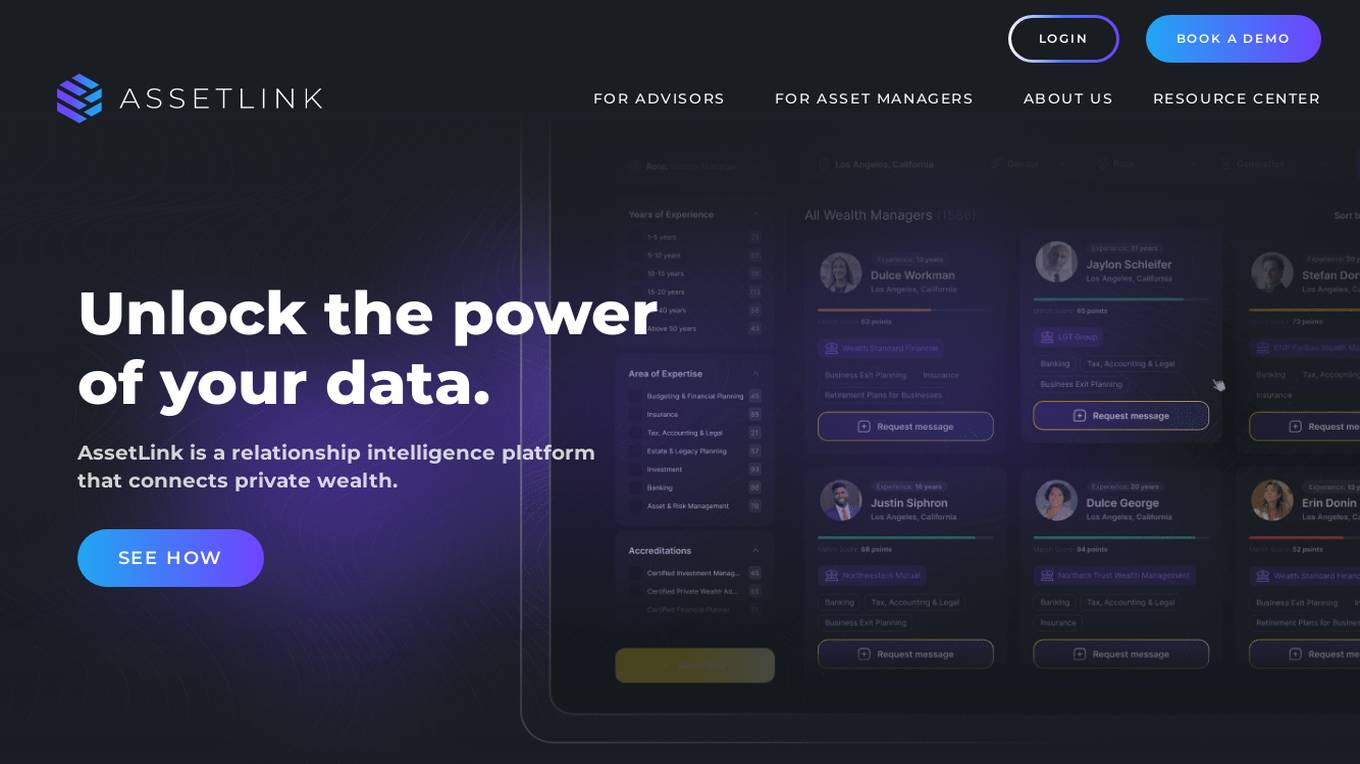
AssetLink
AssetLink is a relationship intelligence platform that leverages contextualized data to connect the private wealth ecosystem. It helps financial advisors and asset managers make informed decisions by facilitating connections between the right buyers and sellers through AI and data-driven insights. The platform aims to streamline the process of matching advisors and asset managers, ultimately enhancing business growth and efficiency.
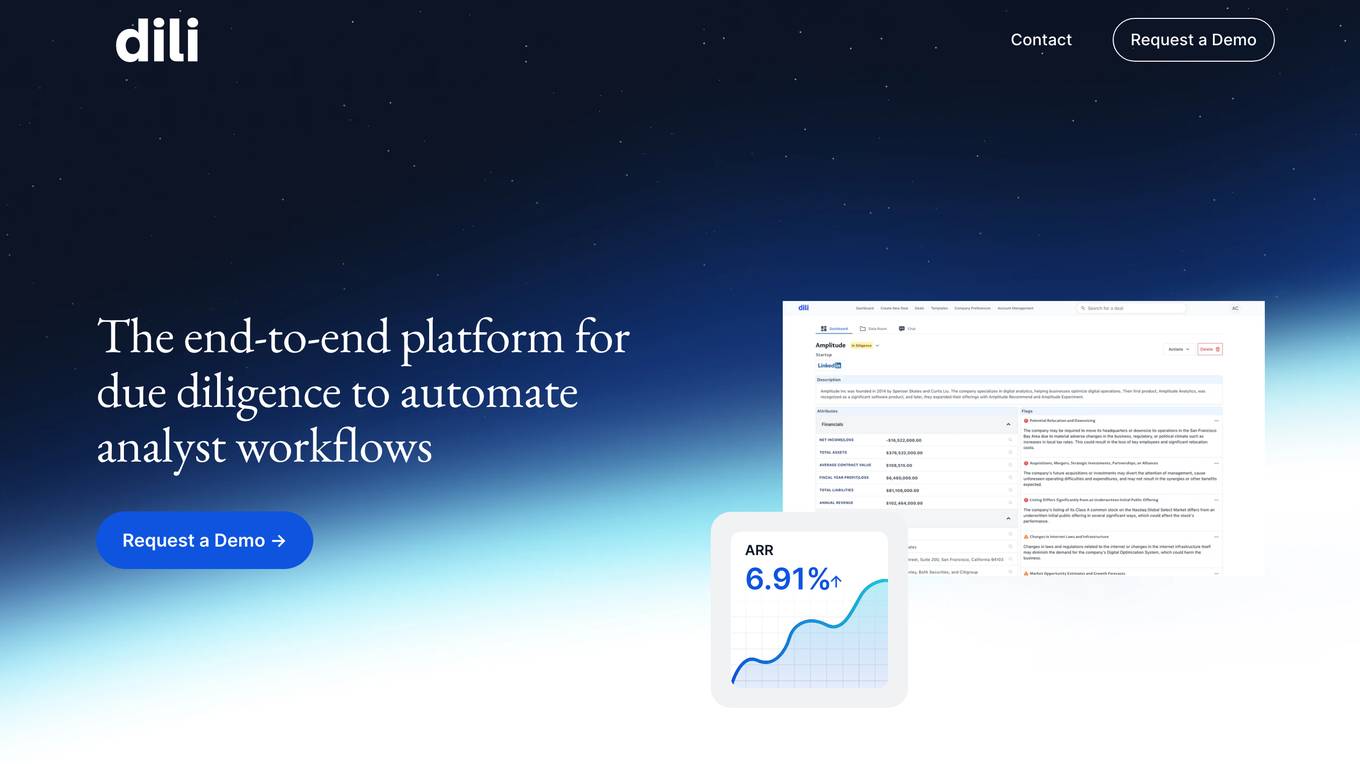
Dili
Dili is an AI Diligence Platform that automates diligence processes for various industries such as Real Estate, Private Equity, and Venture Capital. It helps users extract key data, summarize documents, flag issues, and generate reports with high accuracy and efficiency. Dili's advanced features include instant data extraction, spreadsheet support, red flag identification, intelligent document search, and risk assessments. The platform is designed to improve decision-making by providing reliable insights and reducing human errors in due diligence procedures.

Qortex
Qortex is a video intelligence platform that offers advanced AI technology to optimize advertising, monetization, and analytics for video content. The platform analyzes video frames in real-time to provide deep insights for media investment decisions. With features like On-Stream ad experiences and in-video ad units, Qortex helps brands achieve higher audience attention, revenue per stream, and fill rates. The platform is designed to enhance brand metrics and improve advertising performance through contextual targeting.
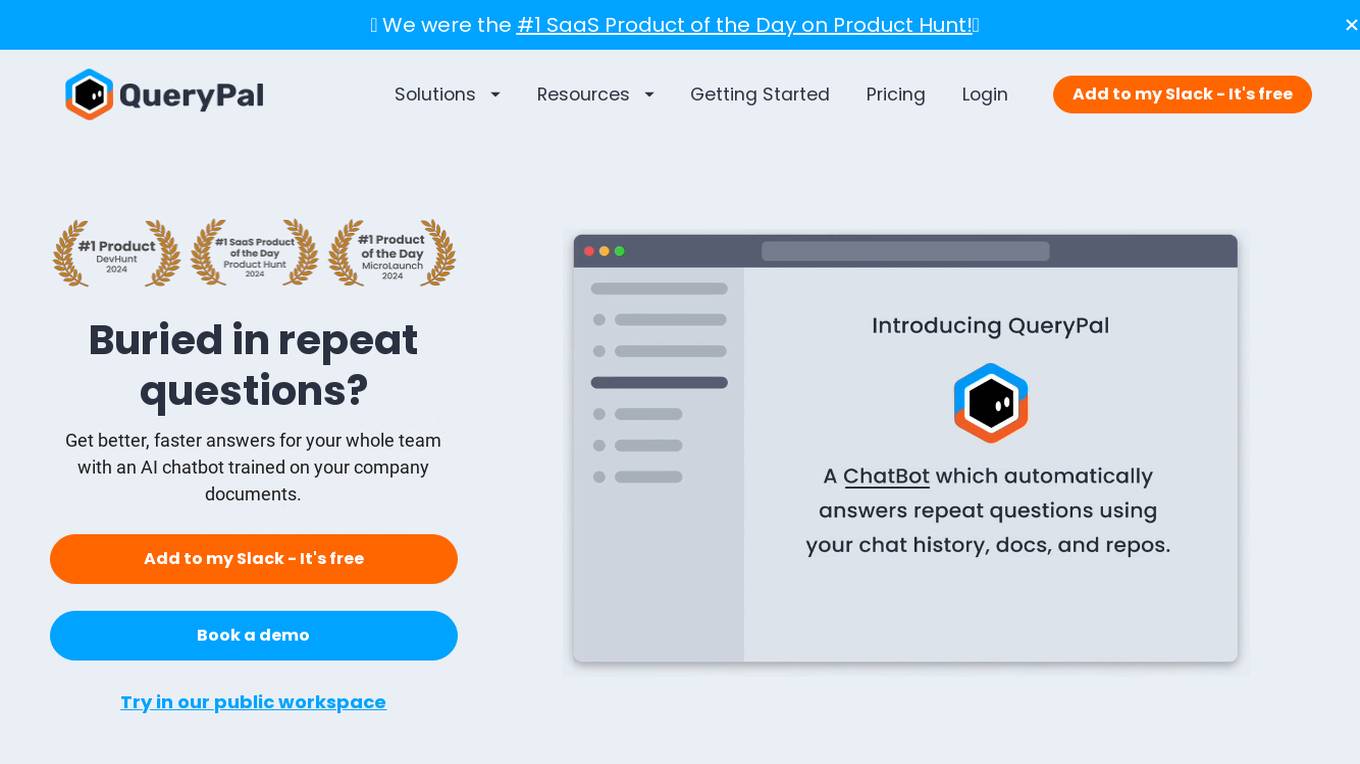
QueryPal
QueryPal is an AI chatbot application designed to provide better and faster answers for teams by leveraging AI technology trained on company documents. It helps in resolving repetitive questions instantly, ensuring accurate and contextualized results. The application allows users to create personalized AI chatbots for each team in minutes, with customization options for document access, chatbot admins, and tone. QueryPal offers unlimited connections to various platforms like Slack, Microsoft Teams, Google Drive, and more, making it a versatile tool for team communication and knowledge management.
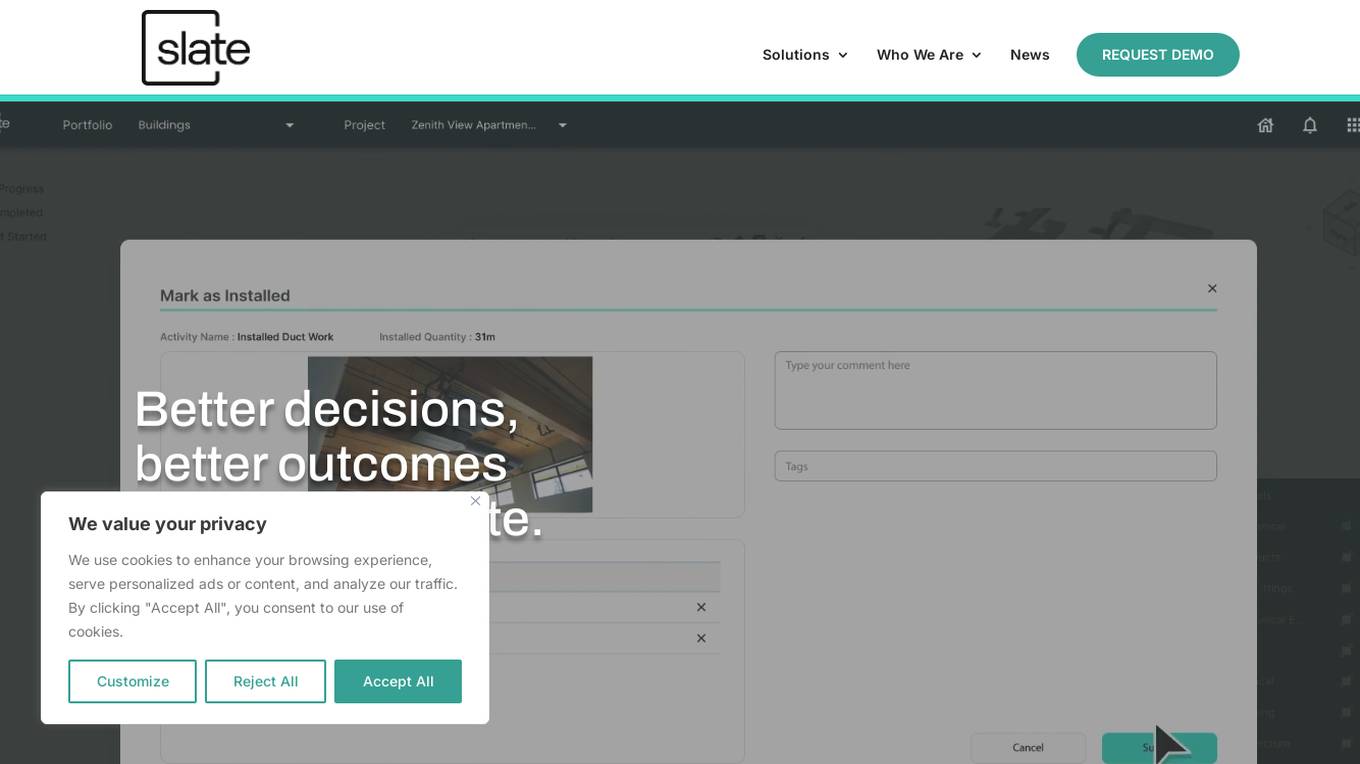
Slate Technologies Solutions
Slate Technologies Solutions is an AI-powered data analytics software that leverages predictive AI, generative AI, and conversational AI to provide a powerful toolkit for next-generation construction. The software connects, contextualizes, and enhances relevant information within existing data sources, allowing users to query, interact, and make decisions based on data insights and recommendations. Slate aims to address real-world construction problems by empowering teams with AI-driven intelligence, optimizing data, and turning unstructured information into actionable insights. The application improves operational efficiency, provides real-time progress reporting, and enables teams to make smarter decisions, ultimately driving profitability and success in construction projects.
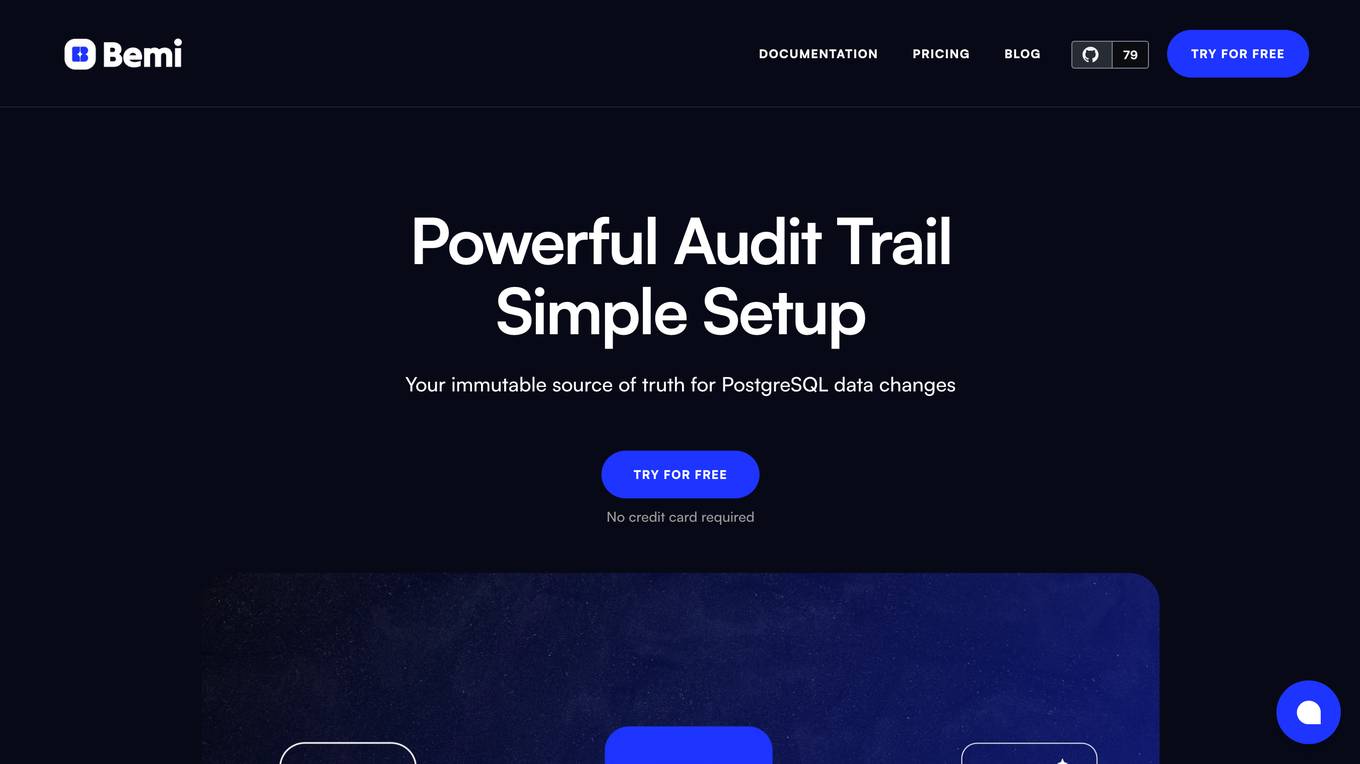
Bemi
Bemi is an automatic audit trail tool designed for PostgreSQL databases. It allows users to track data changes reliably without the need for complex engineering or costly infrastructure. Bemi provides seamless setup, contextualized data tracking, and secure data storage with military-grade encryption. It offers trusted integrations with hosting partners and is proven to handle large data volumes. The tool is highly praised by tech professionals for its reliability and ease of use in tracking data changes.
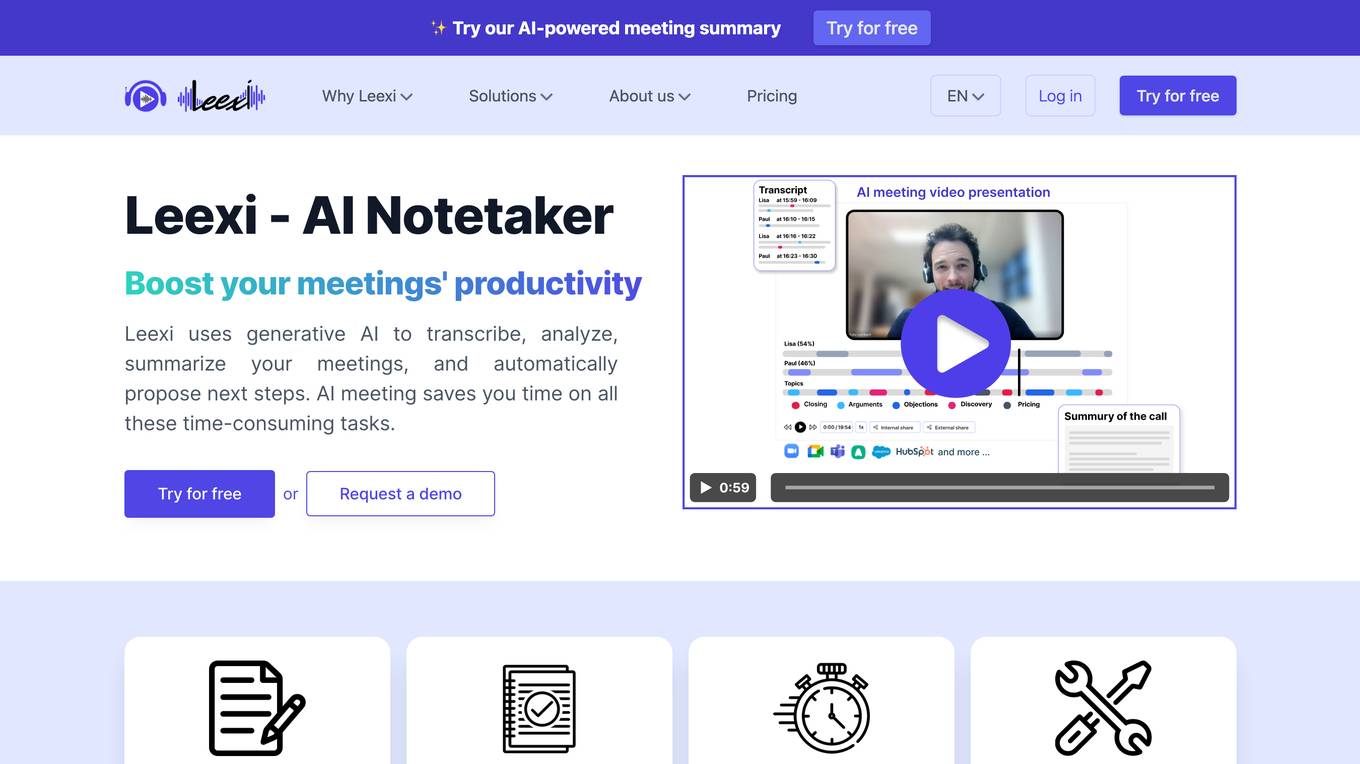
Leexi
Leexi is an AI-powered meeting tool that helps users transcribe, analyze, and summarize calls and meetings. It uses generative AI to automate note-taking, report writing, and propose next steps, saving users time and improving productivity. Leexi offers features such as automated note-taking, tailored summaries, time-saving capabilities, express setup, facilitated collaboration, contextualized call summaries, and in-depth analysis. The application is suitable for various industries and professions, including sales, consulting, customer success, recruitment, finance, journalism, marketing, and real estate.
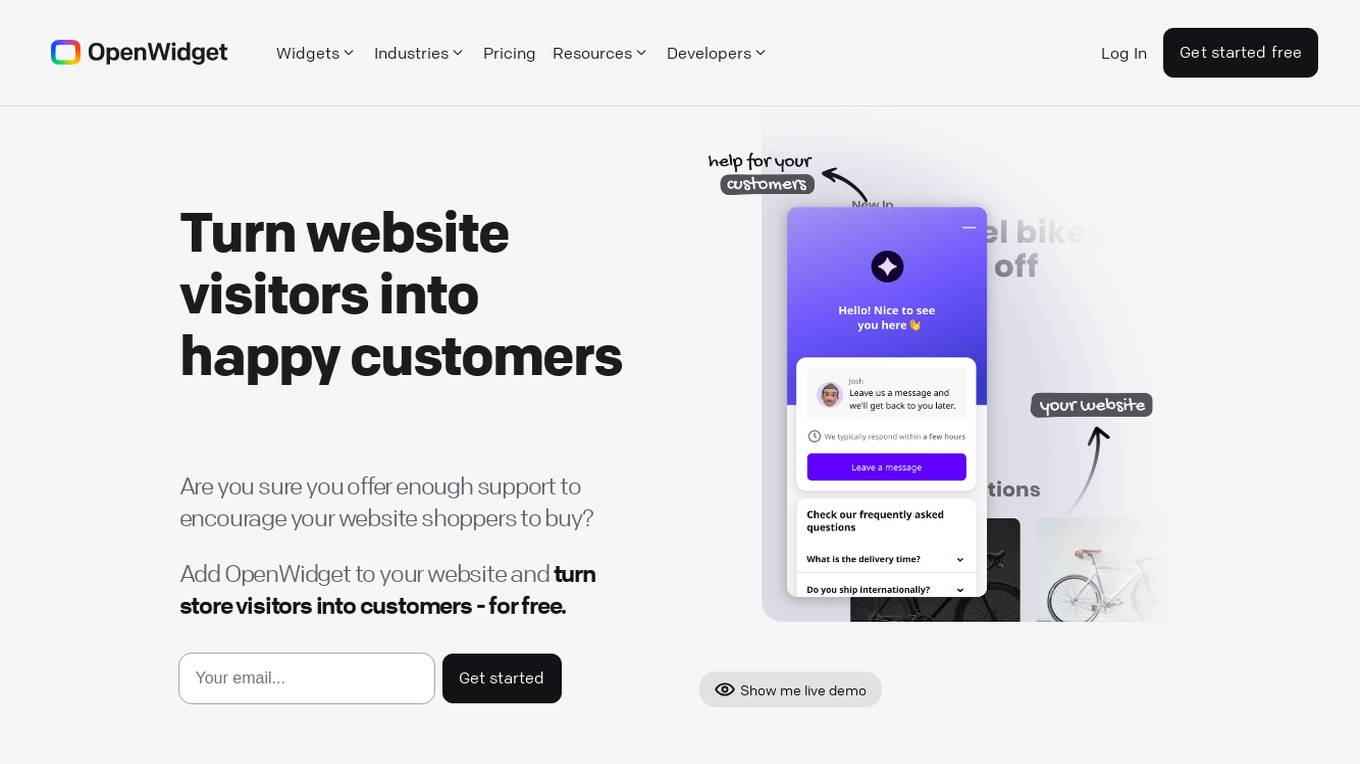
OpenWidget
OpenWidget is a free website widget and plugin application designed to enhance websites for better customer relations. It offers various tools such as Google Reviews, WhatsApp Chat Widget, Facebook Messenger Widget, Chat Interface for OpenAI, Custom Links, Bug Report Form, Contact Form, Feedback Form, FAQ Template, Product Recommendations, Product Cards, Instagram Feed, Visitor Counter, and more. The application aims to help businesses build consistent customer journeys by providing essential web tools for deeper customer relations.
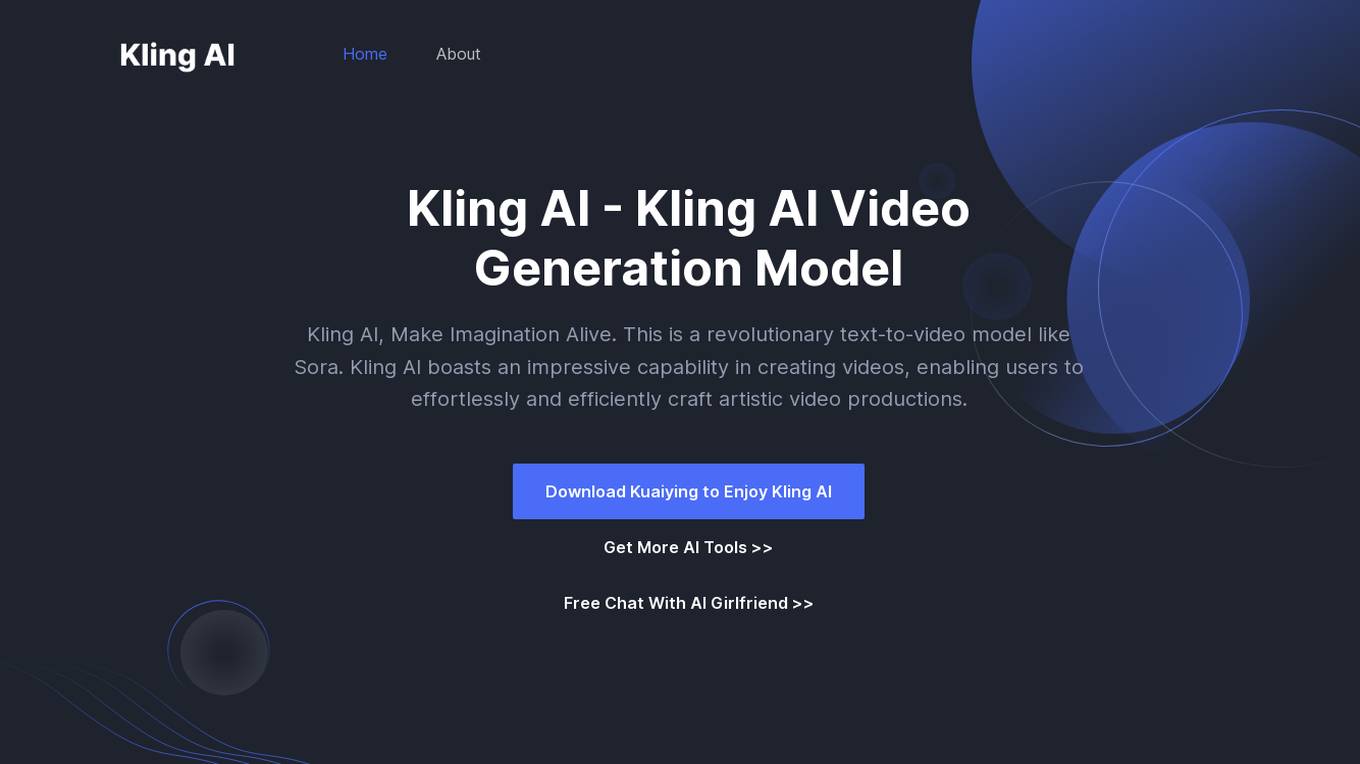
Kling AI
Kling AI is a revolutionary text-to-video generation model that enables users to effortlessly craft artistic video productions. It boasts impressive capabilities in creating videos, making imagination come alive. With features like dynamic motion generation, long video creation, simulation of the physical world, conceptual combination, and cinematic video generation, Kling AI offers a unique and efficient video production experience. Users can enjoy generating videos with realistic movements, diverse aspect ratios, and cinematic quality, all powered by advanced AI technology.
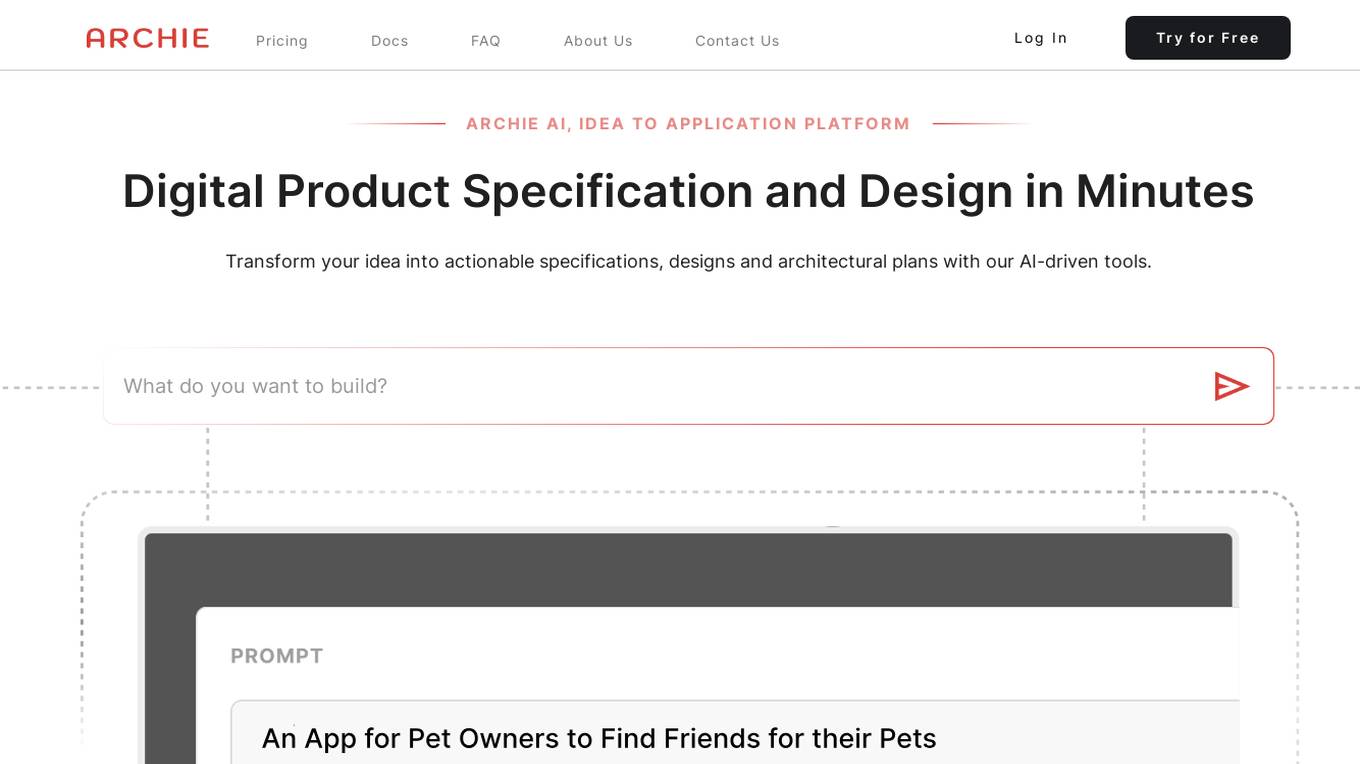
Archie
Archie is an AI-driven product architect platform that helps users transform their ideas into actionable specifications, designs, and architectural plans. It leverages the power of multiple large language models (LLMs) to provide users with insights, suggestions, and assistance throughout the product development process. With Archie, users can quickly generate a free Digital Blueprint of their software application's design, cure writer's block, rapidly conceptualize their ideas, and get data-driven assessments and enhanced creativity suggestions. Archie also allows users to socialize their ideas with early stakeholders and leverage AI to expand their ideas into detailed functional and technical plans.

Focia
Focia is an AI-powered engagement optimization tool that helps users predict, analyze, and enhance their content performance across various digital platforms. It offers features such as ranking and comparing content ideas, content analysis, feedback generation, engagement predictions, workspace customization, and real-time model training. Focia's AI models, including Blaze, Neon, Phantom, and Omni, specialize in analyzing different types of content on platforms like YouTube, Instagram, TikTok, and e-commerce sites. By leveraging Focia, users can boost their engagement, conduct A/B testing, measure performance, and conceptualize content ideas effectively.
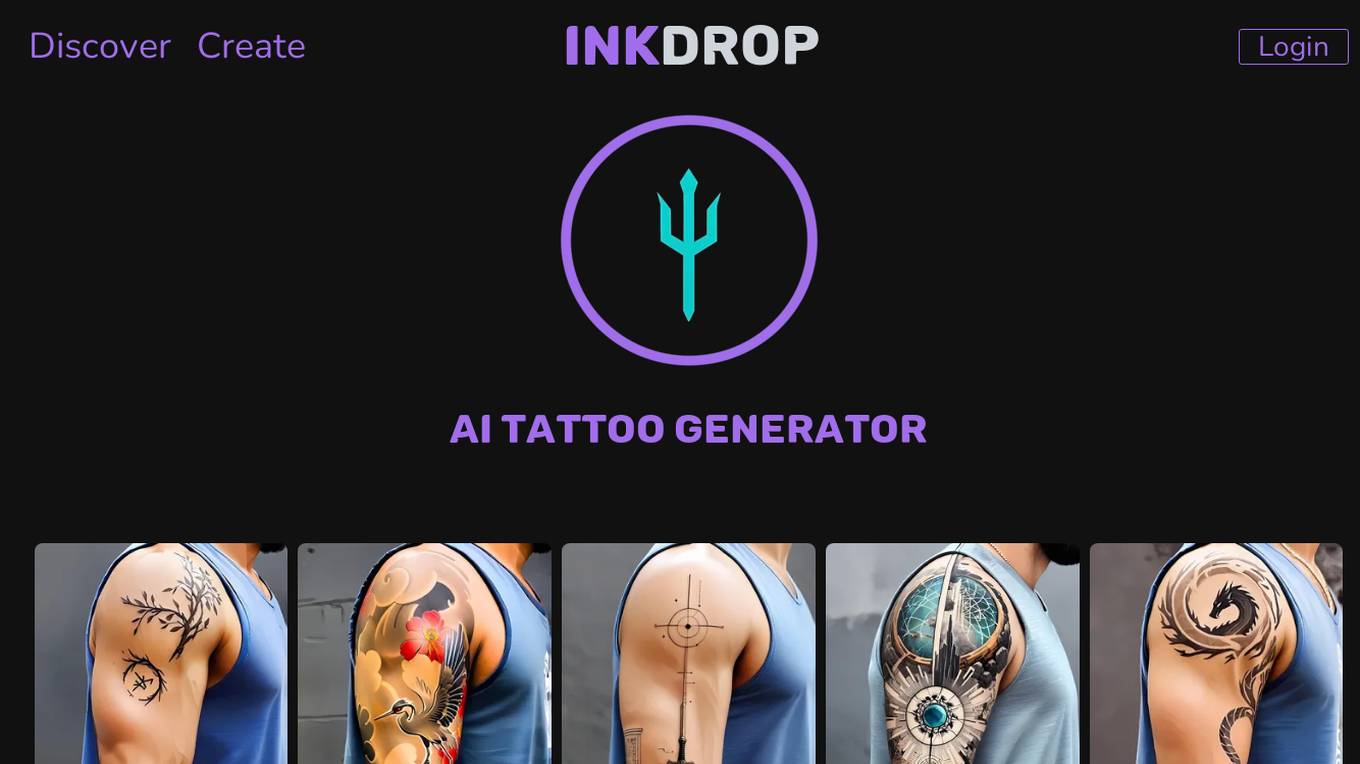
InkDrop
InkDrop is an AI Tattoo Generator application that simplifies the tattoo design process by allowing users to discover, define, and remix tattoo ideas in three easy steps. Users can explore a gallery of tattoo designs, select preferences to generate ideas, and refine favorite designs into customized creations. The tool helps users communicate their vision with tattoo artists, making it easier to conceptualize and finalize tattoo ideas.
20 - Open Source AI Tools
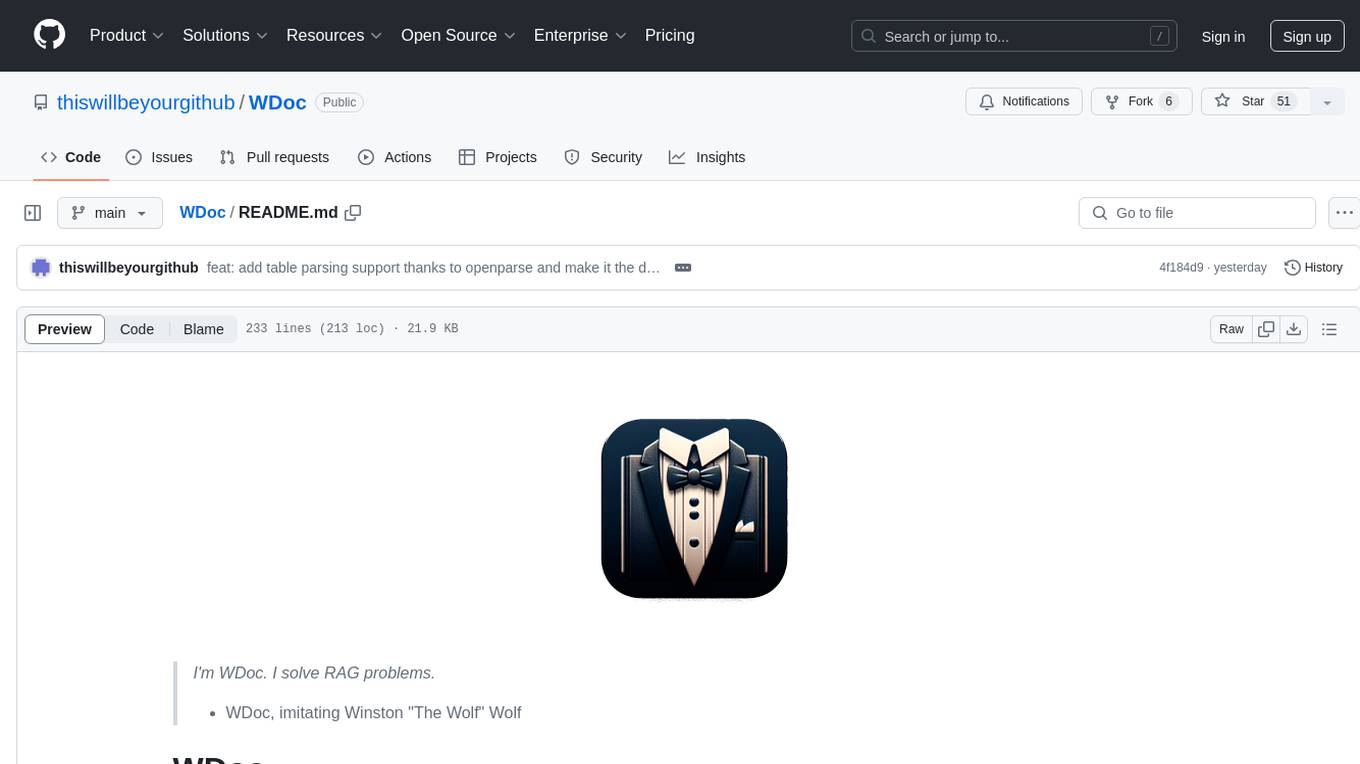
WDoc
WDoc is a powerful Retrieval-Augmented Generation (RAG) system designed to summarize, search, and query documents across various file types. It supports querying tens of thousands of documents simultaneously, offers tailored summaries to efficiently manage large amounts of information, and includes features like supporting multiple file types, various LLMs, local and private LLMs, advanced RAG capabilities, advanced summaries, trust verification, markdown formatted answers, sophisticated embeddings, extensive documentation, scriptability, type checking, lazy imports, caching, fast processing, shell autocompletion, notification callbacks, and more. WDoc is ideal for researchers, students, and professionals dealing with extensive information sources.
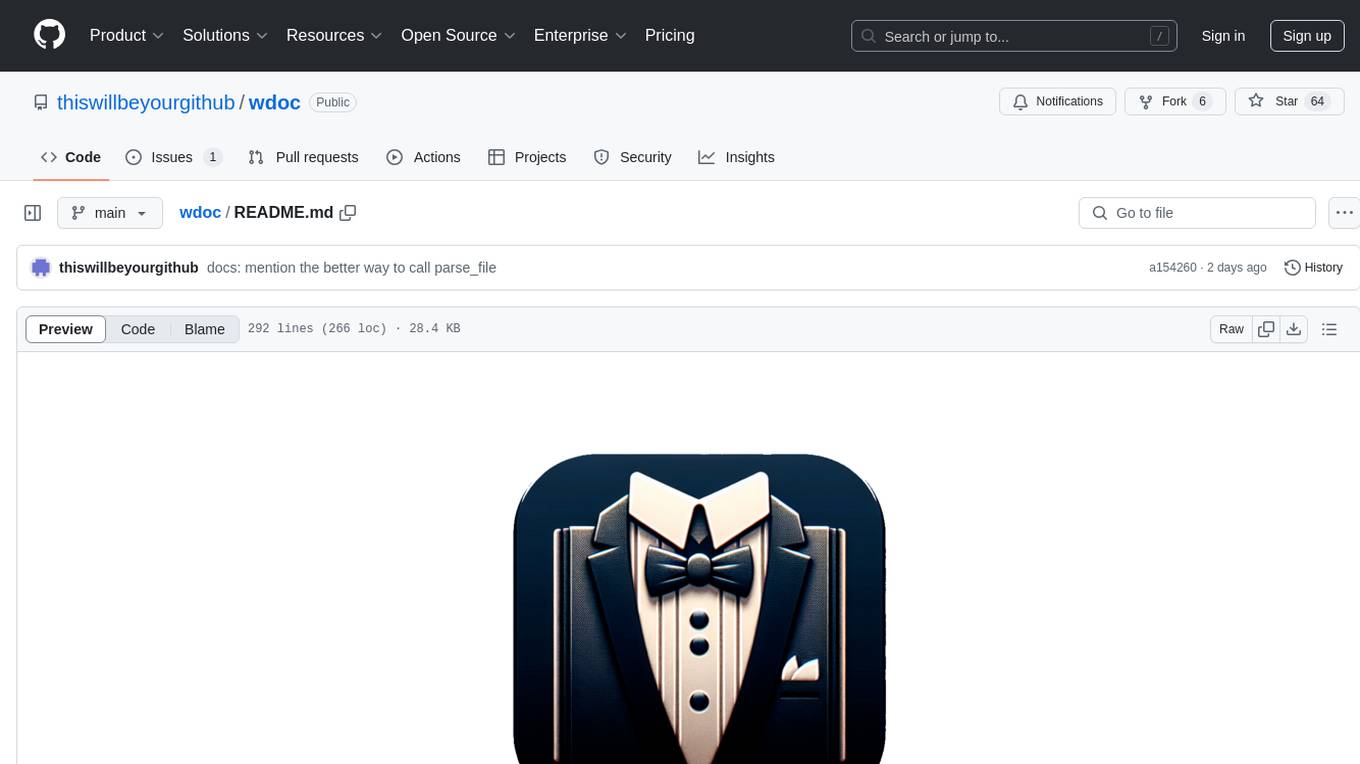
wdoc
wdoc is a powerful Retrieval-Augmented Generation (RAG) system designed to summarize, search, and query documents across various file types. It aims to handle large volumes of diverse document types, making it ideal for researchers, students, and professionals dealing with extensive information sources. wdoc uses LangChain to process and analyze documents, supporting tens of thousands of documents simultaneously. The system includes features like high recall and specificity, support for various Language Model Models (LLMs), advanced RAG capabilities, advanced document summaries, and support for multiple tasks. It offers markdown-formatted answers and summaries, customizable embeddings, extensive documentation, scriptability, and runtime type checking. wdoc is suitable for power users seeking document querying capabilities and AI-powered document summaries.
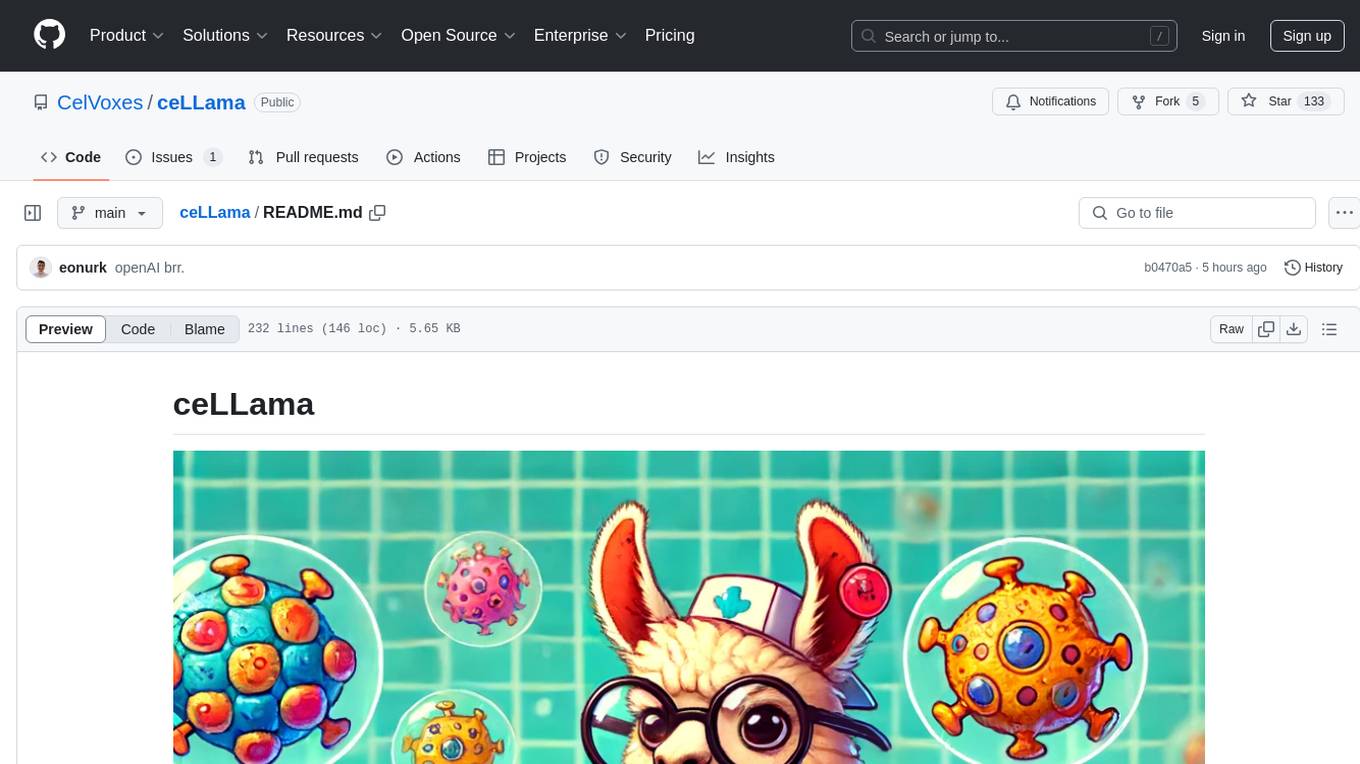
ceLLama
ceLLama is a streamlined automation pipeline for cell type annotations using large-language models (LLMs). It operates locally to ensure privacy, provides comprehensive analysis by considering negative genes, offers efficient processing speed, and generates customized reports. Ideal for quick and preliminary cell type checks.
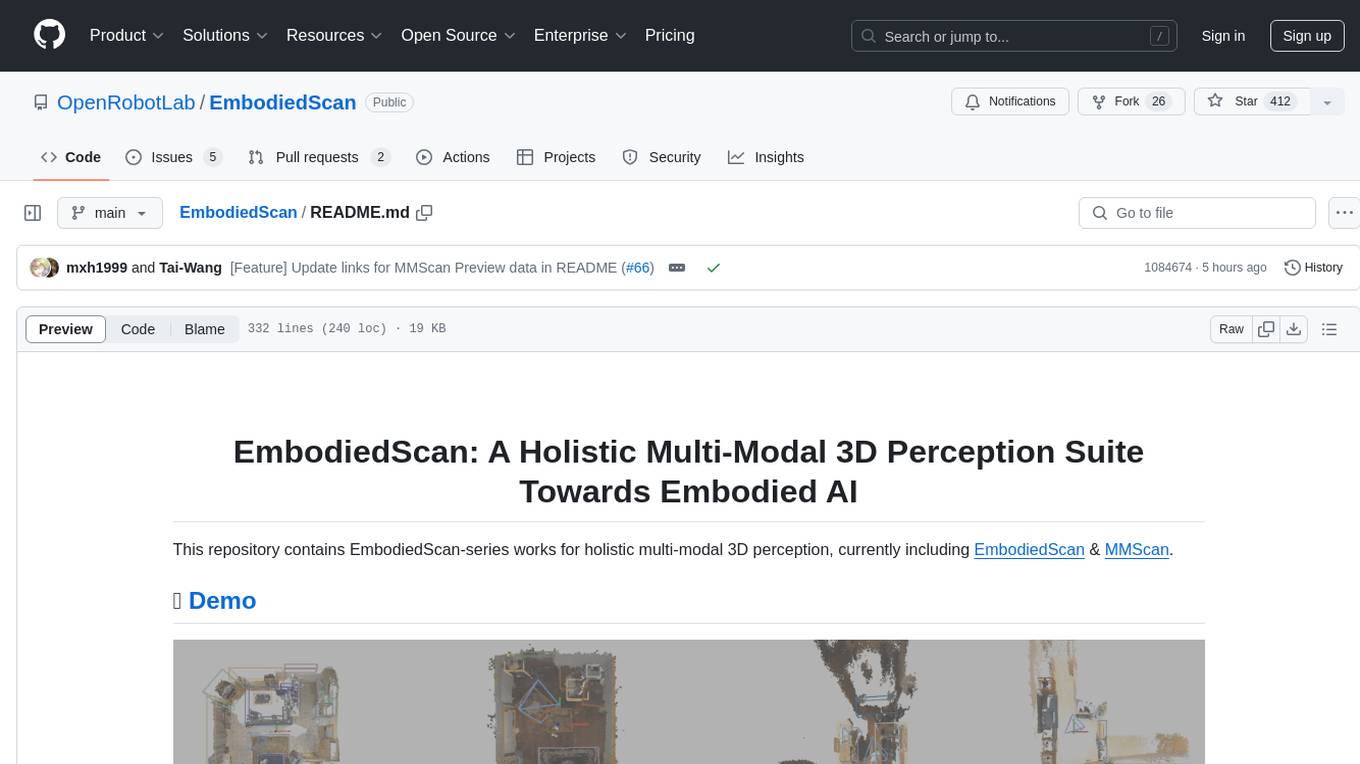
EmbodiedScan
EmbodiedScan is a holistic multi-modal 3D perception suite designed for embodied AI. It introduces a multi-modal, ego-centric 3D perception dataset and benchmark for holistic 3D scene understanding. The dataset includes over 5k scans with 1M ego-centric RGB-D views, 1M language prompts, 160k 3D-oriented boxes spanning 760 categories, and dense semantic occupancy with 80 common categories. The suite includes a baseline framework named Embodied Perceptron, capable of processing multi-modal inputs for 3D perception tasks and language-grounded tasks.
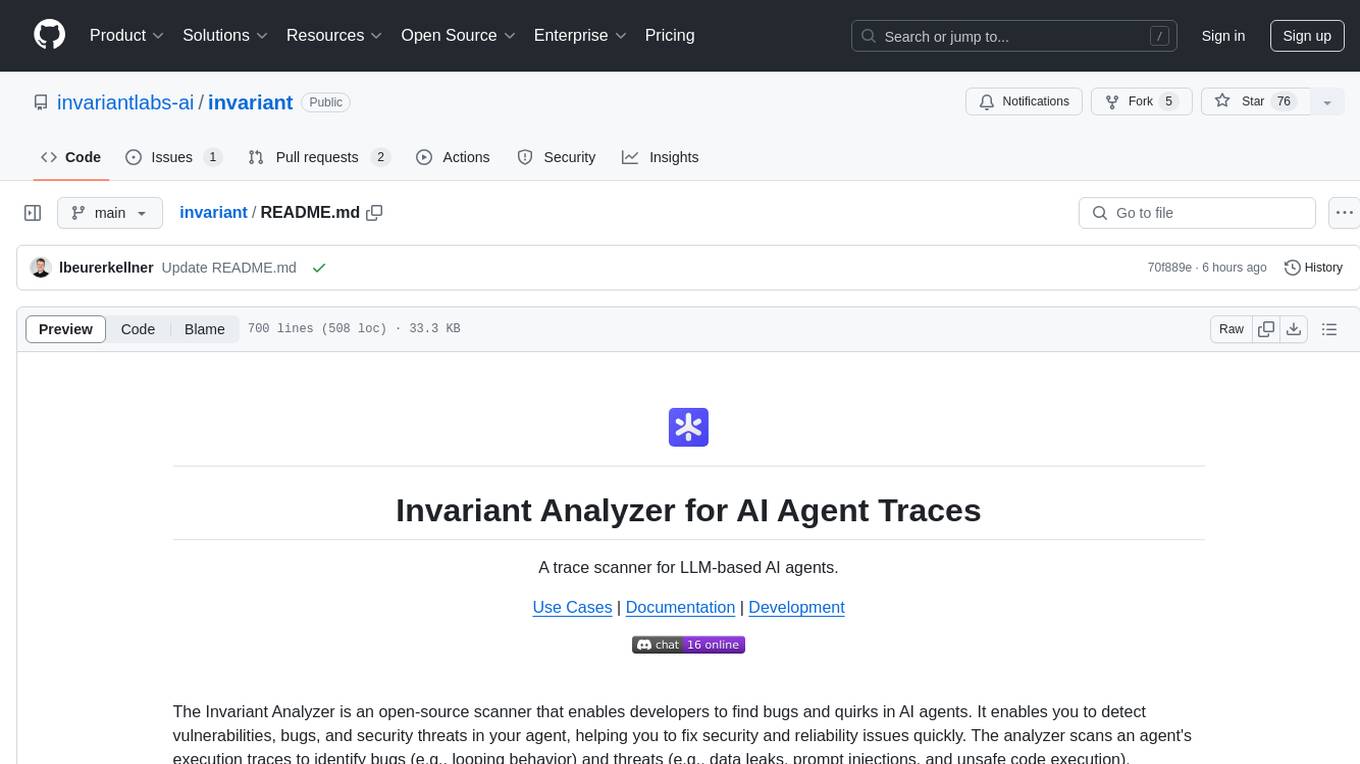
invariant
Invariant Analyzer is an open-source scanner designed for LLM-based AI agents to find bugs, vulnerabilities, and security threats. It scans agent execution traces to identify issues like looping behavior, data leaks, prompt injections, and unsafe code execution. The tool offers a library of built-in checkers, an expressive policy language, data flow analysis, real-time monitoring, and extensible architecture for custom checkers. It helps developers debug AI agents, scan for security violations, and prevent security issues and data breaches during runtime. The analyzer leverages deep contextual understanding and a purpose-built rule matching engine for security policy enforcement.
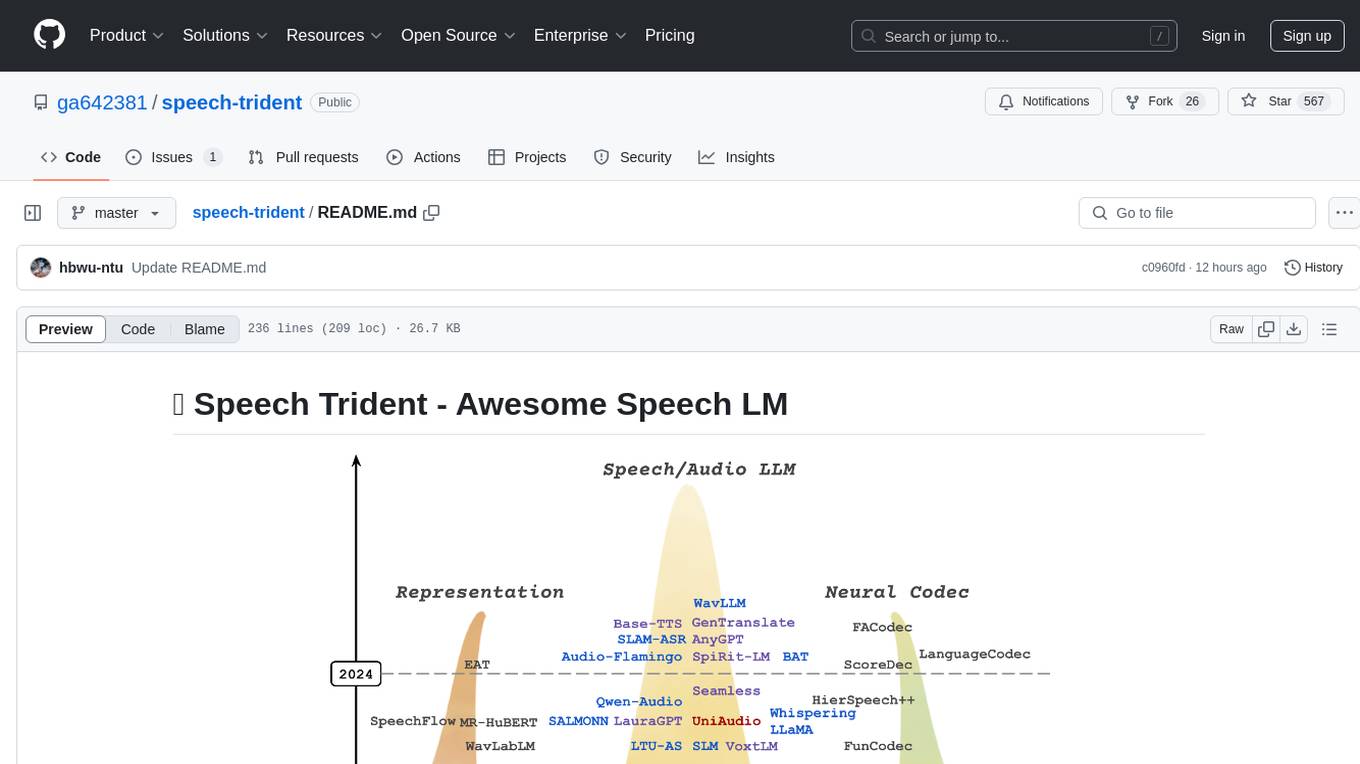
speech-trident
Speech Trident is a repository focusing on speech/audio large language models, covering representation learning, neural codec, and language models. It explores speech representation models, speech neural codec models, and speech large language models. The repository includes contributions from various researchers and provides a comprehensive list of speech/audio language models, representation models, and codec models.

awesome-generative-information-retrieval
This repository contains a curated list of resources on generative information retrieval, including research papers, datasets, tools, and applications. Generative information retrieval is a subfield of information retrieval that uses generative models to generate new documents or passages of text that are relevant to a given query. This can be useful for a variety of tasks, such as question answering, summarization, and document generation. The resources in this repository are intended to help researchers and practitioners stay up-to-date on the latest advances in generative information retrieval.
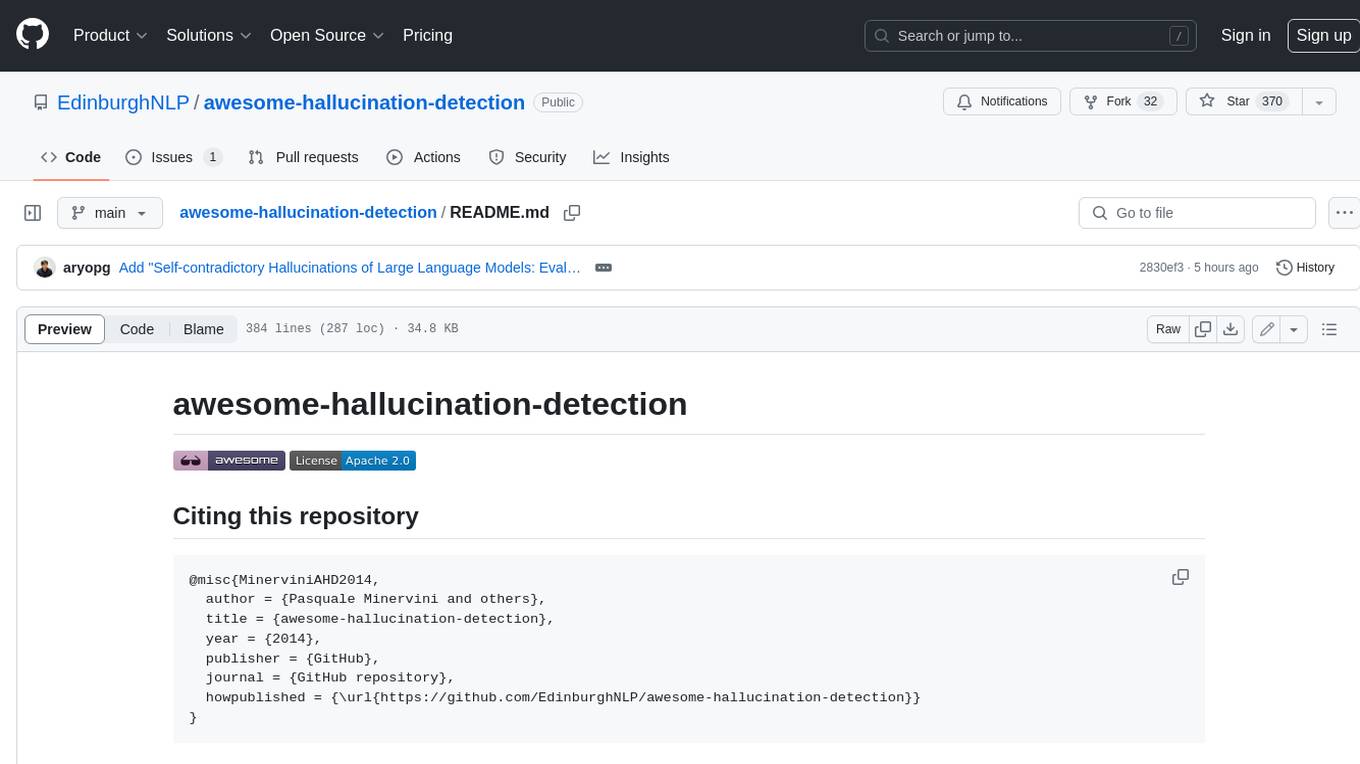
awesome-hallucination-detection
This repository provides a curated list of papers, datasets, and resources related to the detection and mitigation of hallucinations in large language models (LLMs). Hallucinations refer to the generation of factually incorrect or nonsensical text by LLMs, which can be a significant challenge for their use in real-world applications. The resources in this repository aim to help researchers and practitioners better understand and address this issue.
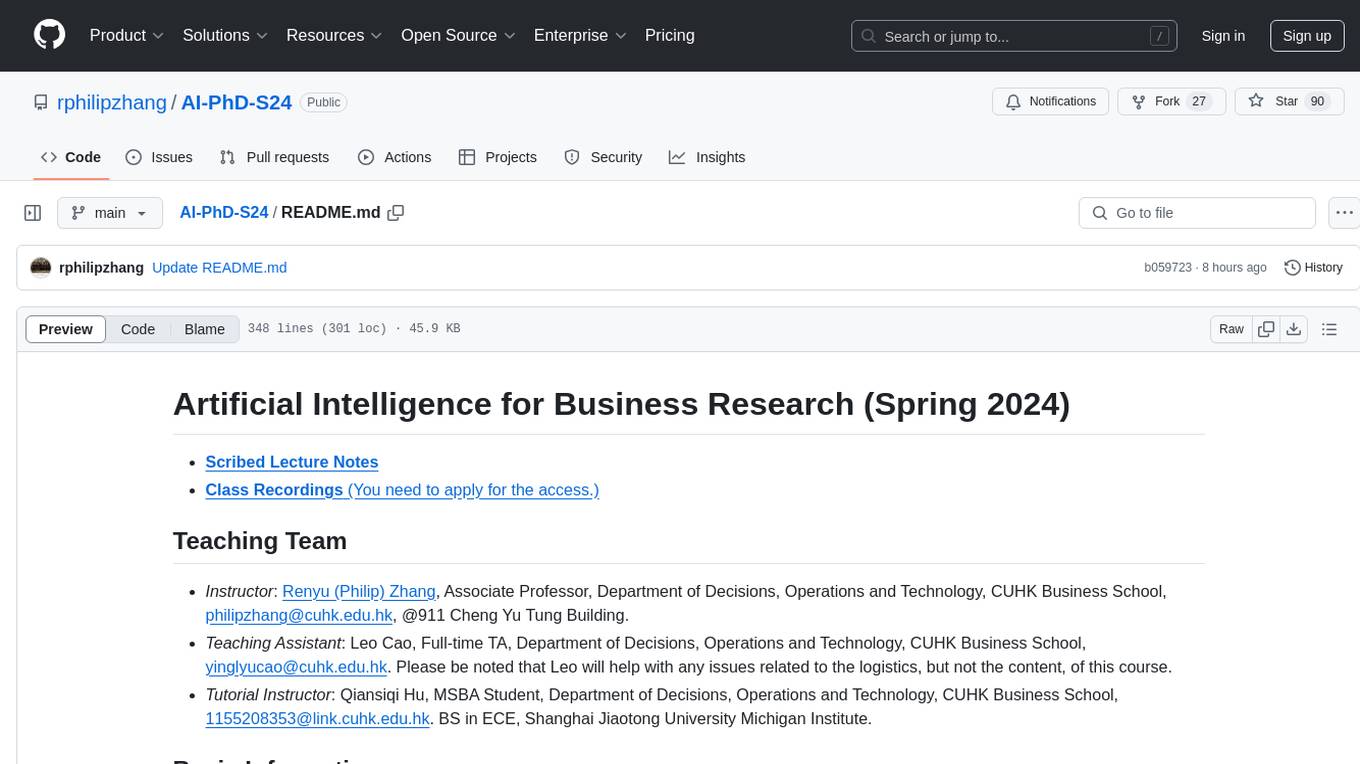
AI-PhD-S24
AI-PhD-S24 is a mono-repo for the PhD course 'AI for Business Research' at CUHK Business School in Spring 2024. The course aims to provide a basic understanding of machine learning and artificial intelligence concepts/methods used in business research, showcase how ML/AI is utilized in business research, and introduce state-of-the-art AI/ML technologies. The course includes scribed lecture notes, class recordings, and covers topics like AI/ML fundamentals, DL, NLP, CV, unsupervised learning, and diffusion models.
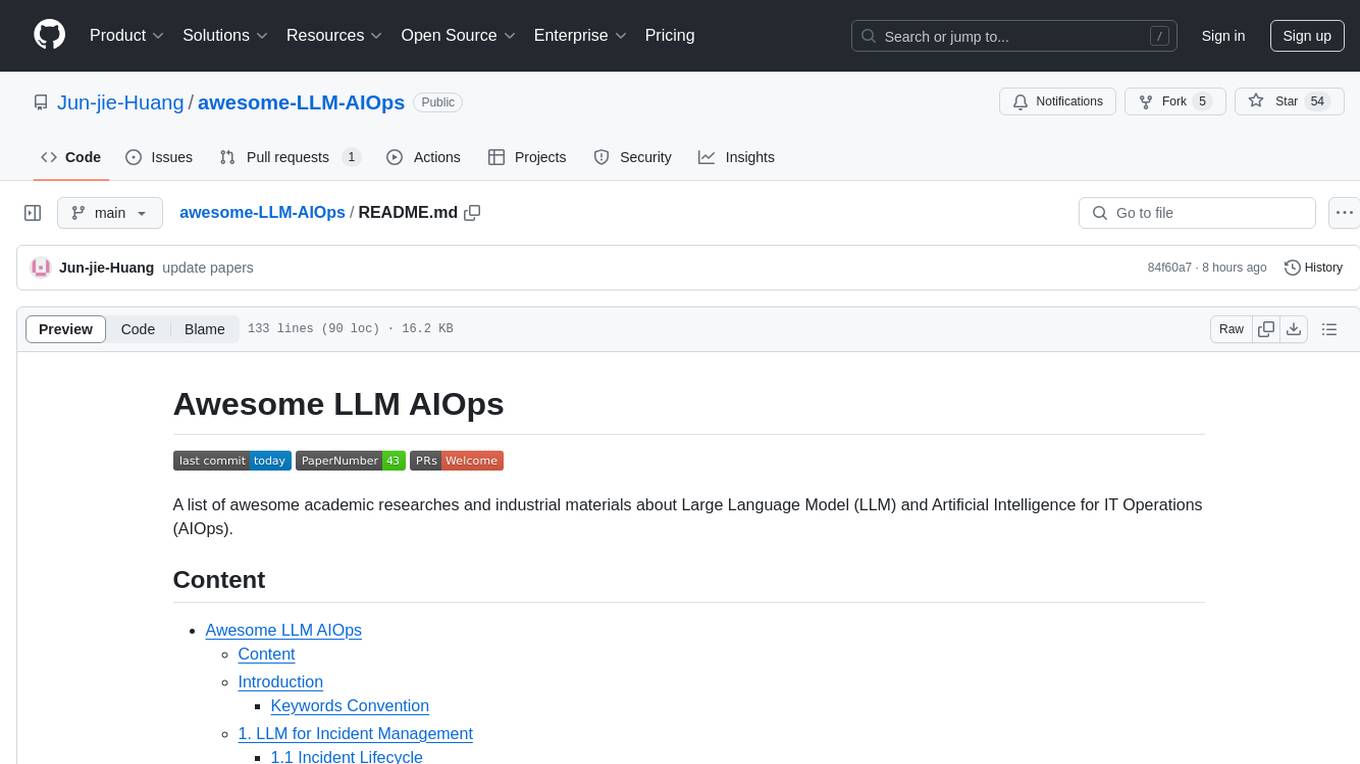
awesome-LLM-AIOps
The 'awesome-LLM-AIOps' repository is a curated list of academic research and industrial materials related to Large Language Models (LLM) and Artificial Intelligence for IT Operations (AIOps). It covers various topics such as incident management, log analysis, root cause analysis, incident mitigation, and incident postmortem analysis. The repository provides a comprehensive collection of papers, projects, and tools related to the application of LLM and AI in IT operations, offering valuable insights and resources for researchers and practitioners in the field.
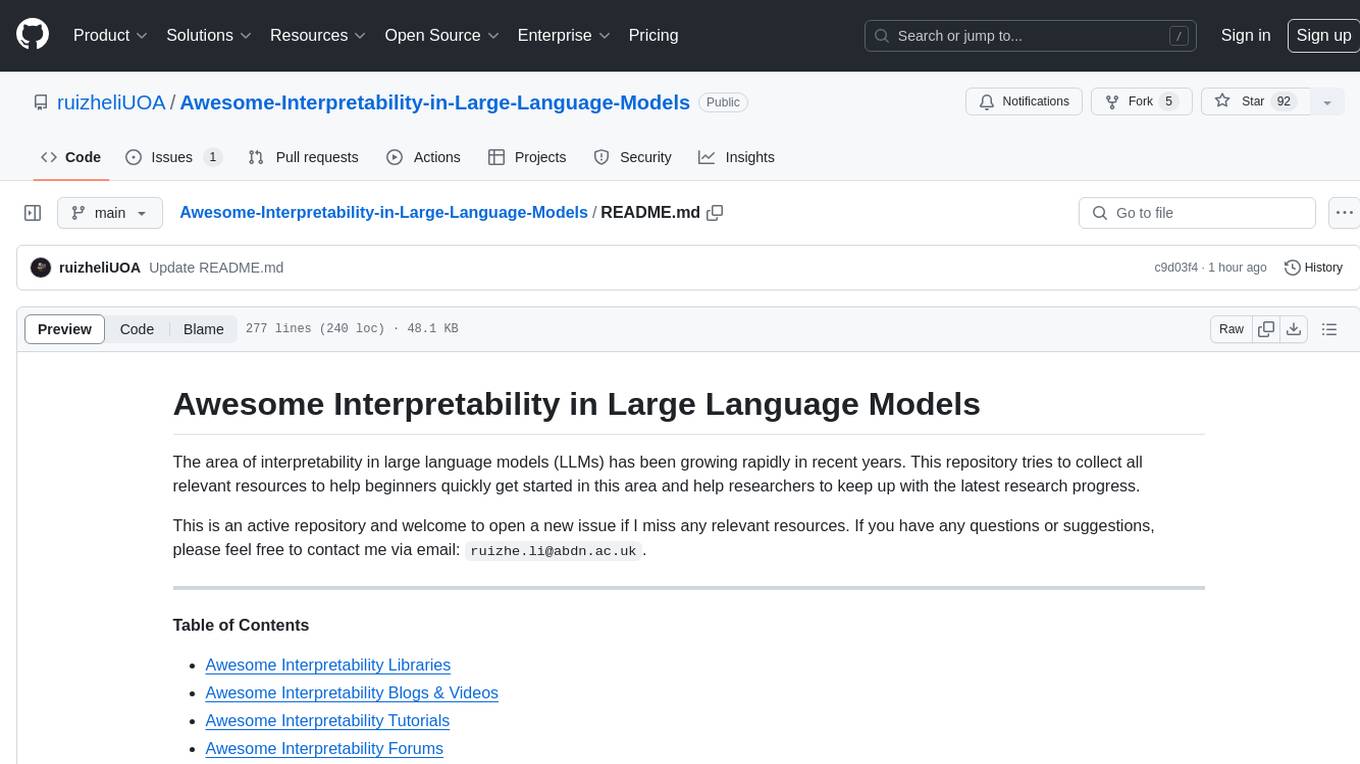
Awesome-Interpretability-in-Large-Language-Models
This repository is a collection of resources focused on interpretability in large language models (LLMs). It aims to help beginners get started in the area and keep researchers updated on the latest progress. It includes libraries, blogs, tutorials, forums, tools, programs, papers, and more related to interpretability in LLMs.
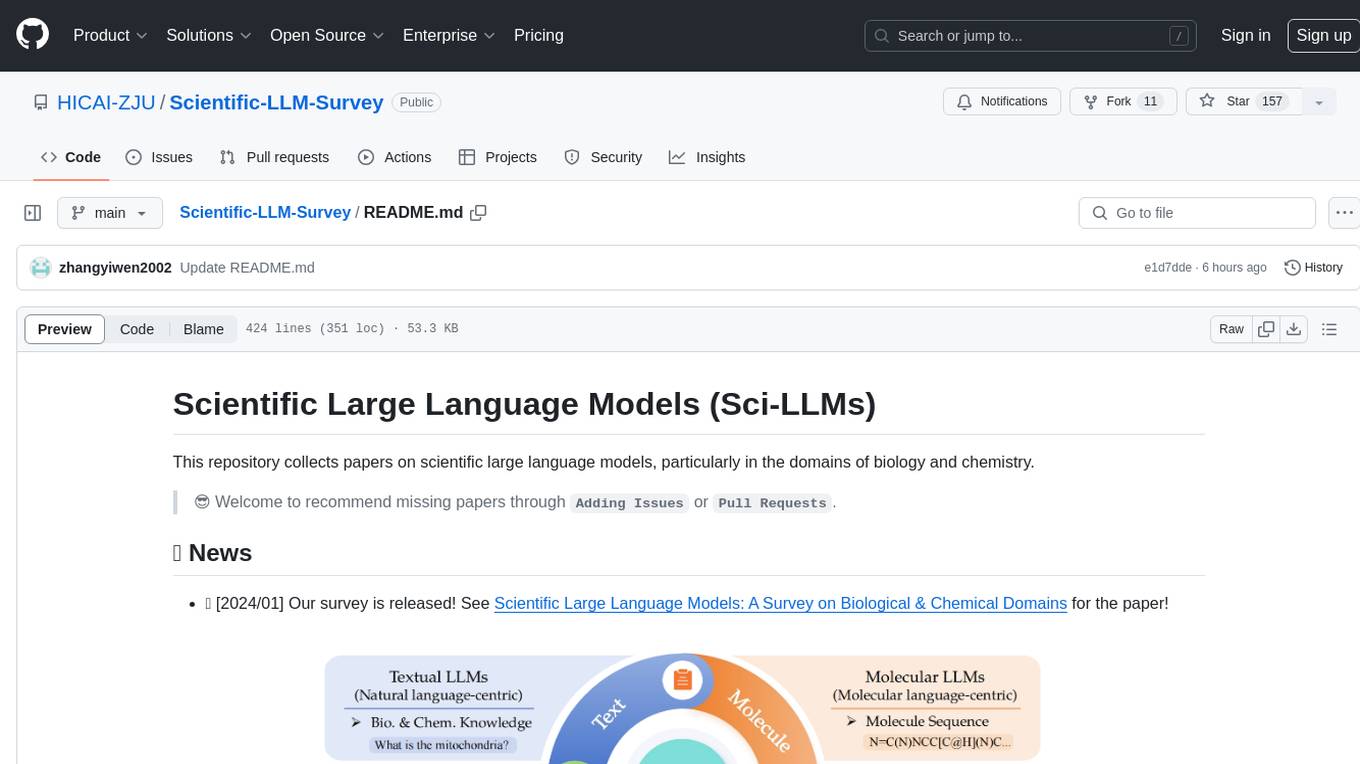
Scientific-LLM-Survey
Scientific Large Language Models (Sci-LLMs) is a repository that collects papers on scientific large language models, focusing on biology and chemistry domains. It includes textual, molecular, protein, and genomic languages, as well as multimodal language. The repository covers various large language models for tasks such as molecule property prediction, interaction prediction, protein sequence representation, protein sequence generation/design, DNA-protein interaction prediction, and RNA prediction. It also provides datasets and benchmarks for evaluating these models. The repository aims to facilitate research and development in the field of scientific language modeling.
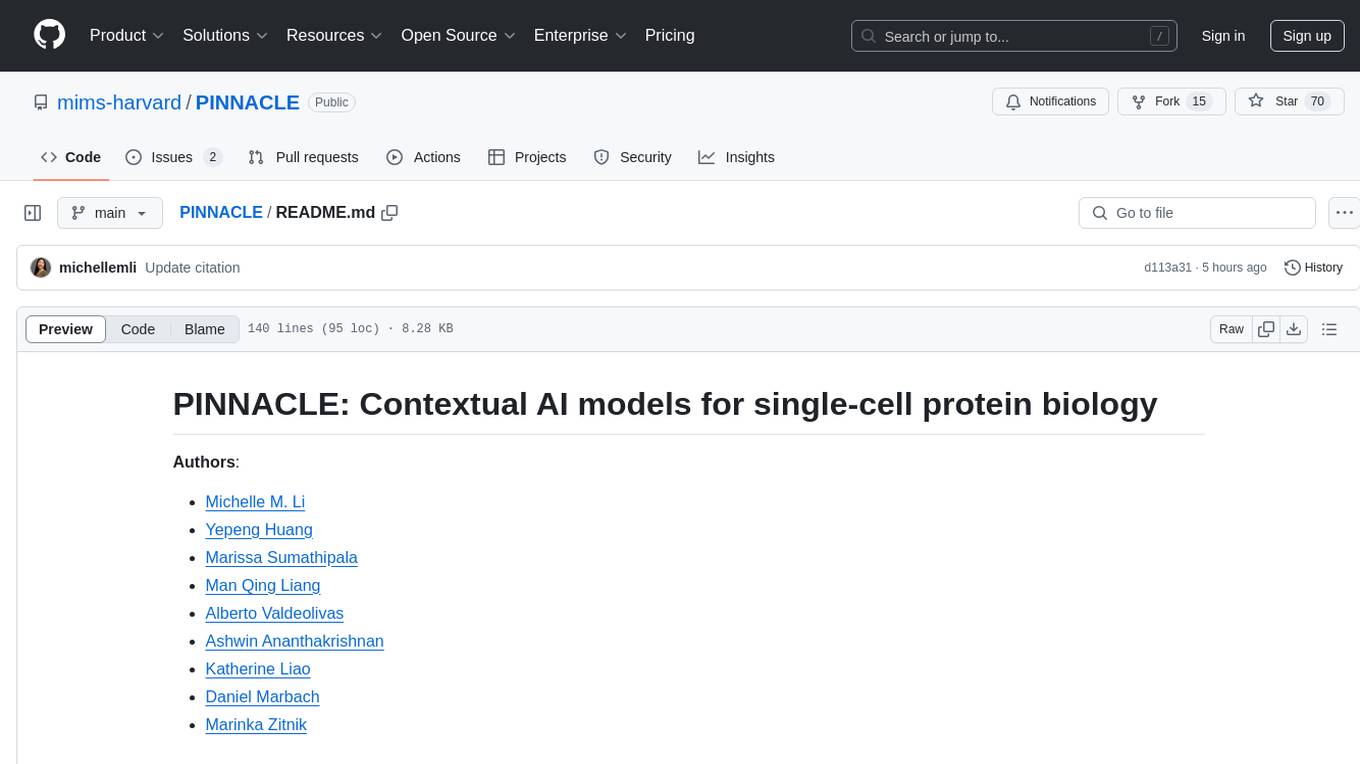
PINNACLE
PINNACLE is a flexible geometric deep learning approach that trains on contextualized protein interaction networks to generate context-aware protein representations. It provides protein representations split across various cell-type contexts from different tissues and organs. The tool can be fine-tuned to study the genomic effects of drugs and nominate promising protein targets and cell-type contexts for further investigation. PINNACLE exemplifies the paradigm of incorporating context-specific effects for studying biological systems, especially the impact of disease and therapeutics.
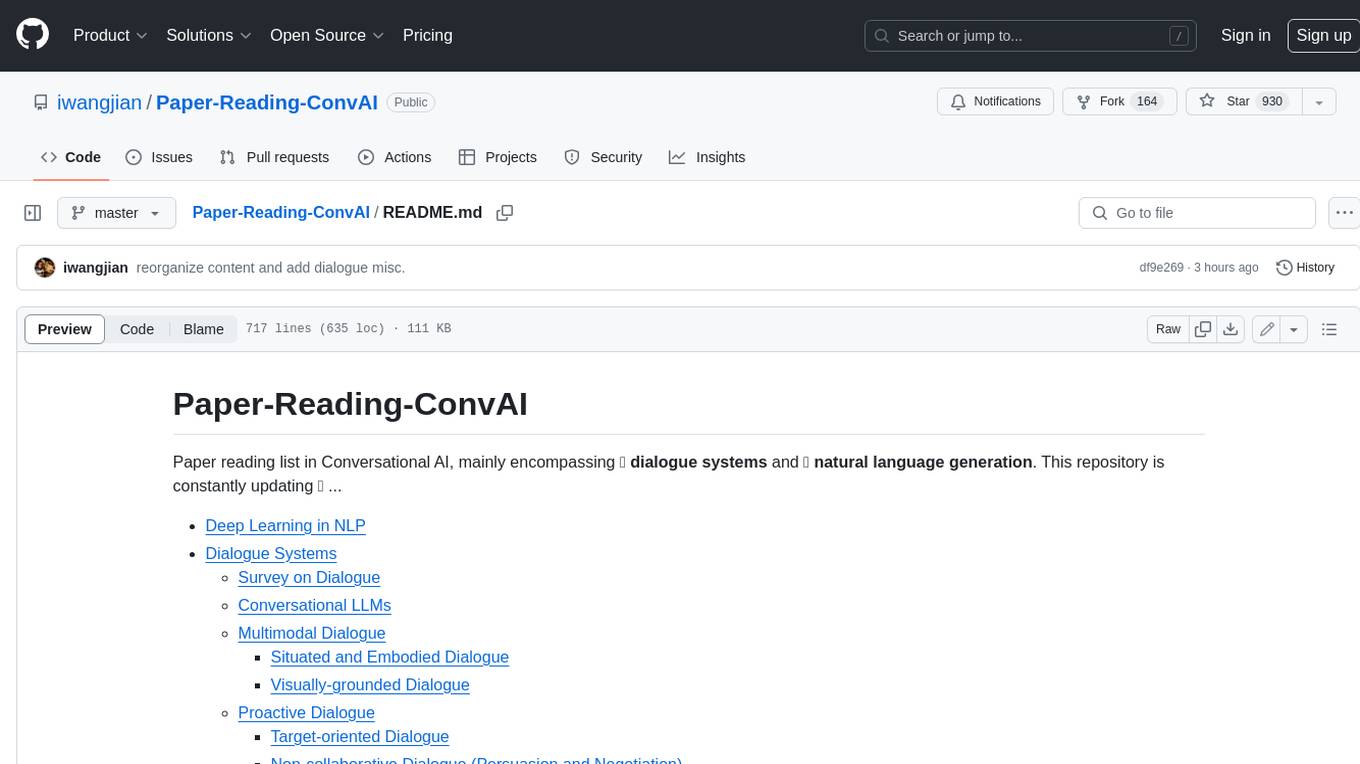
Paper-Reading-ConvAI
Paper-Reading-ConvAI is a repository that contains a list of papers, datasets, and resources related to Conversational AI, mainly encompassing dialogue systems and natural language generation. This repository is constantly updating.
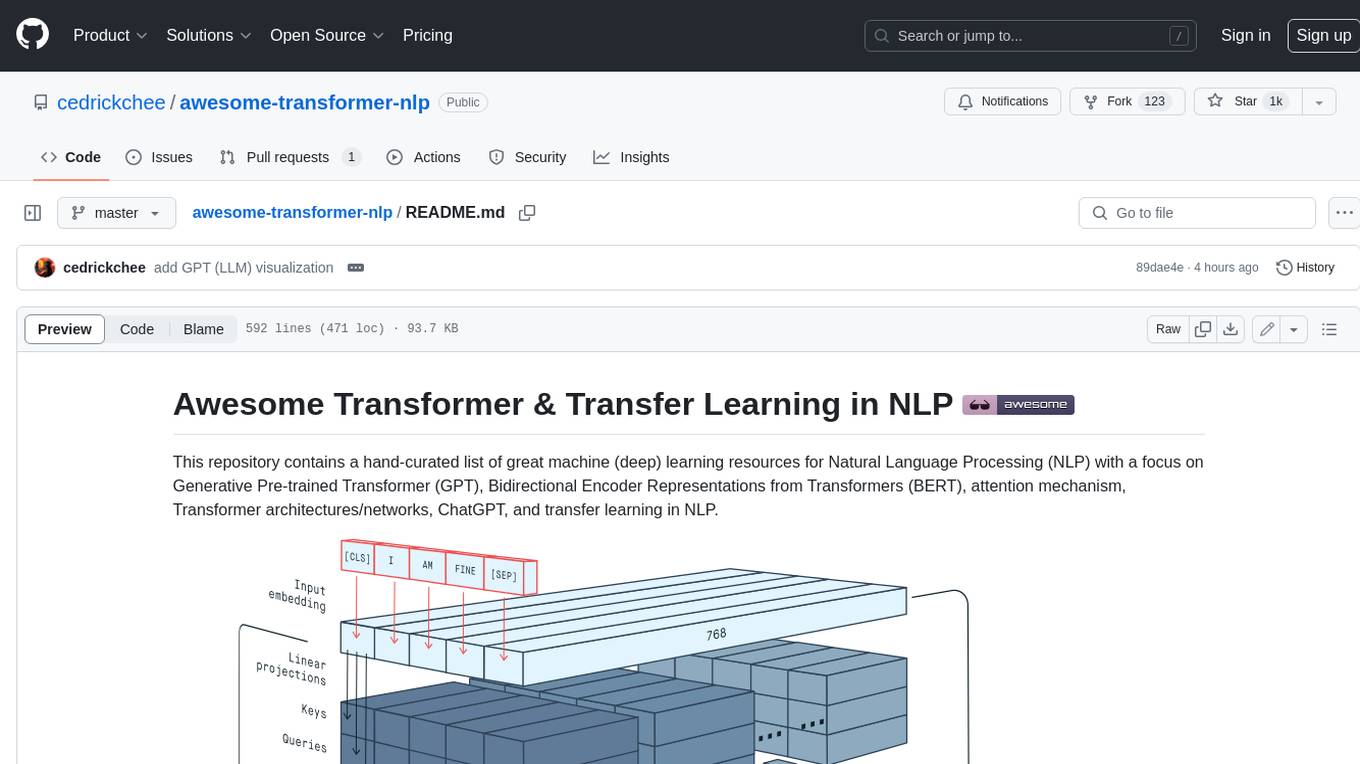
awesome-transformer-nlp
This repository contains a hand-curated list of great machine (deep) learning resources for Natural Language Processing (NLP) with a focus on Generative Pre-trained Transformer (GPT), Bidirectional Encoder Representations from Transformers (BERT), attention mechanism, Transformer architectures/networks, Chatbot, and transfer learning in NLP.
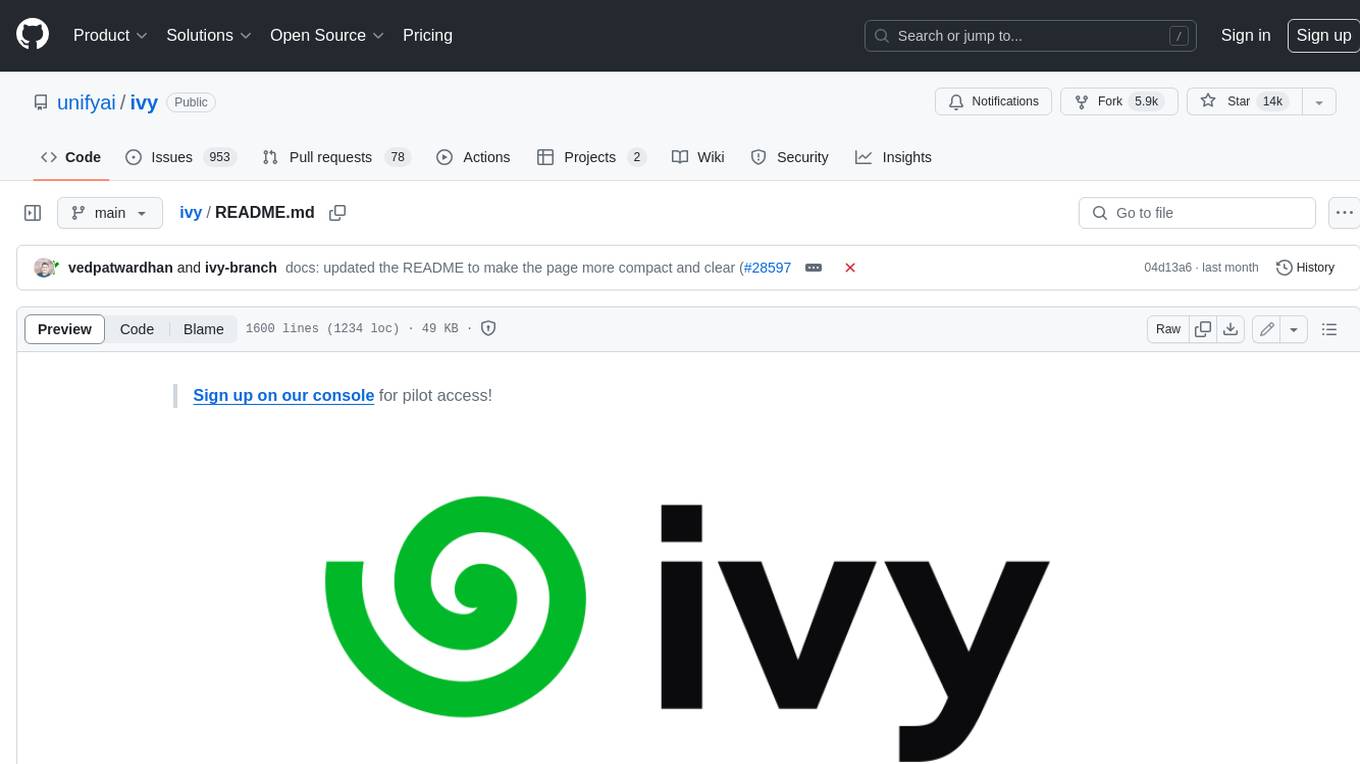
ivy
Ivy is an open-source machine learning framework that enables you to: * 🔄 **Convert code into any framework** : Use and build on top of any model, library, or device by converting any code from one framework to another using `ivy.transpile`. * ⚒️ **Write framework-agnostic code** : Write your code once in `ivy` and then choose the most appropriate ML framework as the backend to leverage all the benefits and tools. Join our growing community 🌍 to connect with people using Ivy. **Let's** unify.ai **together 🦾**
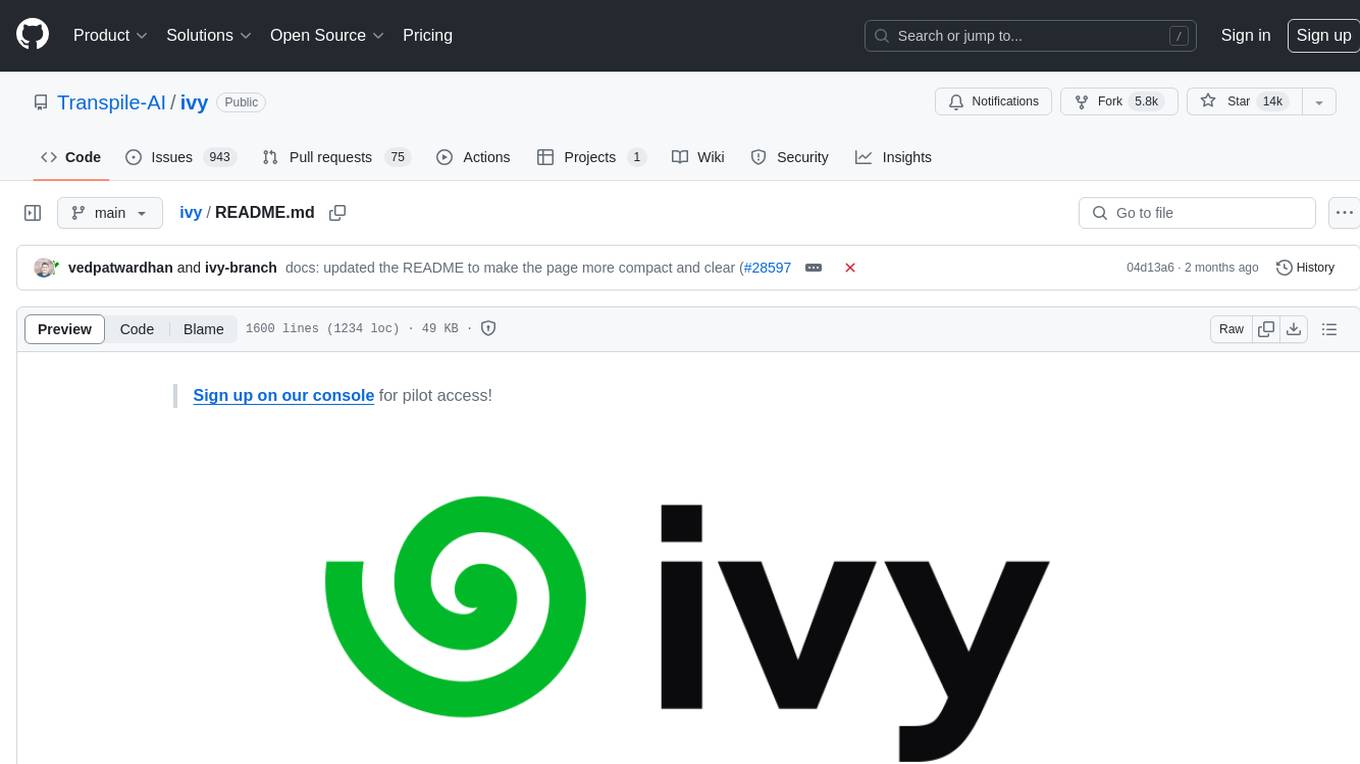
ivy
Ivy is an open-source machine learning framework that enables users to convert code between different ML frameworks and write framework-agnostic code. It allows users to transpile code from one framework to another, making it easy to use building blocks from different frameworks in a single project. Ivy also serves as a flexible framework that breaks free from framework limitations, allowing users to publish code that is interoperable with various frameworks and future frameworks. Users can define trainable modules and layers using Ivy's stateful API, making it easy to build and train models across different backends.
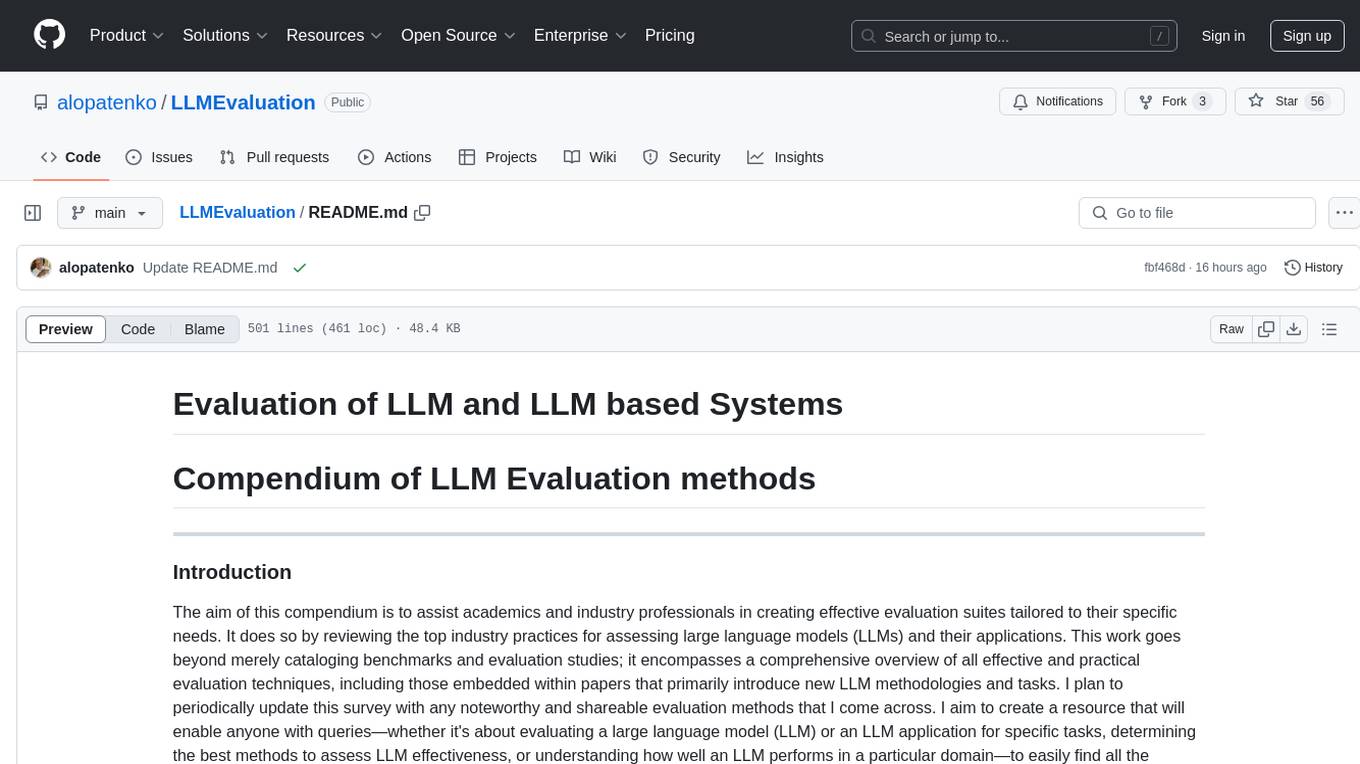
LLMEvaluation
The LLMEvaluation repository is a comprehensive compendium of evaluation methods for Large Language Models (LLMs) and LLM-based systems. It aims to assist academics and industry professionals in creating effective evaluation suites tailored to their specific needs by reviewing industry practices for assessing LLMs and their applications. The repository covers a wide range of evaluation techniques, benchmarks, and studies related to LLMs, including areas such as embeddings, question answering, multi-turn dialogues, reasoning, multi-lingual tasks, ethical AI, biases, safe AI, code generation, summarization, software performance, agent LLM architectures, long text generation, graph understanding, and various unclassified tasks. It also includes evaluations for LLM systems in conversational systems, copilots, search and recommendation engines, task utility, and verticals like healthcare, law, science, financial, and others. The repository provides a wealth of resources for evaluating and understanding the capabilities of LLMs in different domains.
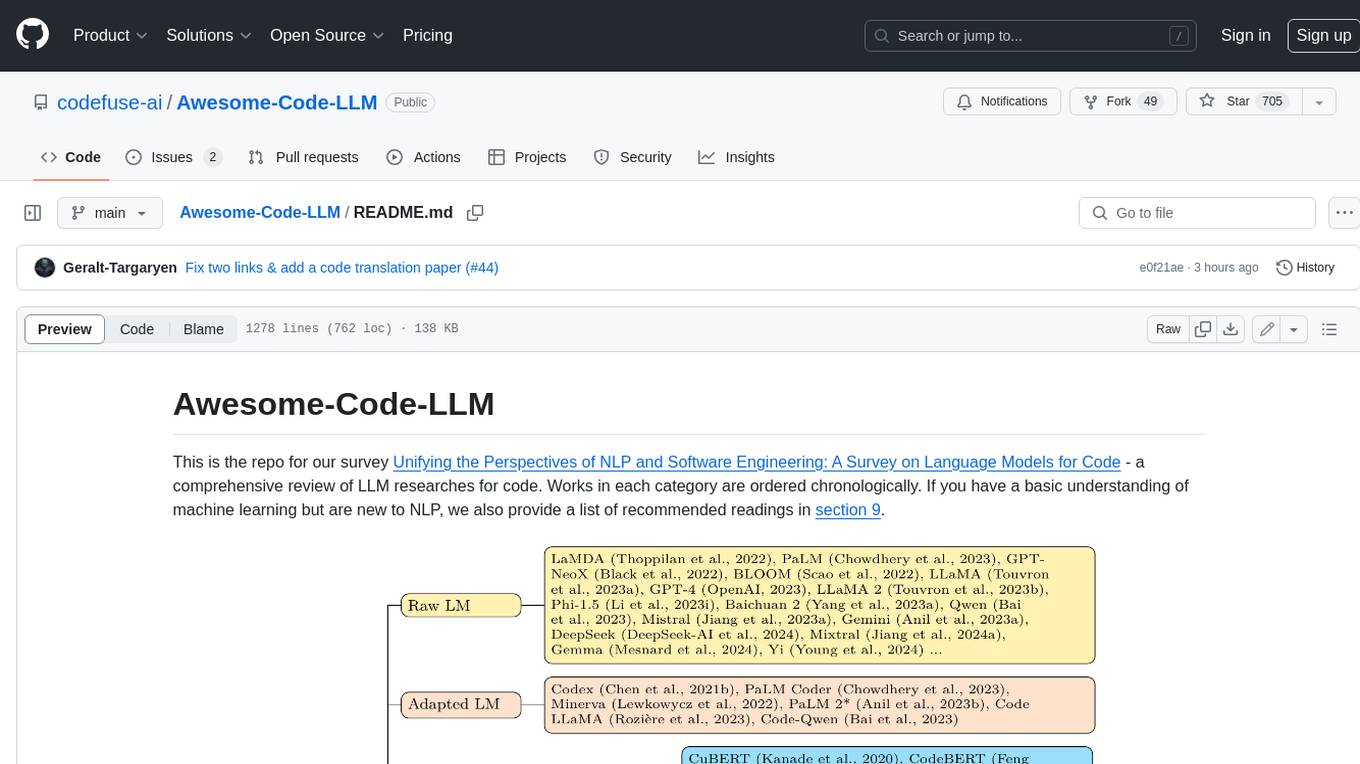
Awesome-Code-LLM
Analyze the following text from a github repository (name and readme text at end) . Then, generate a JSON object with the following keys and provide the corresponding information for each key, in lowercase letters: 'description' (detailed description of the repo, must be less than 400 words,Ensure that no line breaks and quotation marks.),'for_jobs' (List 5 jobs suitable for this tool,in lowercase letters), 'ai_keywords' (keywords of the tool,user may use those keyword to find the tool,in lowercase letters), 'for_tasks' (list of 5 specific tasks user can use this tool to do,in lowercase letters), 'answer' (in english languages)
